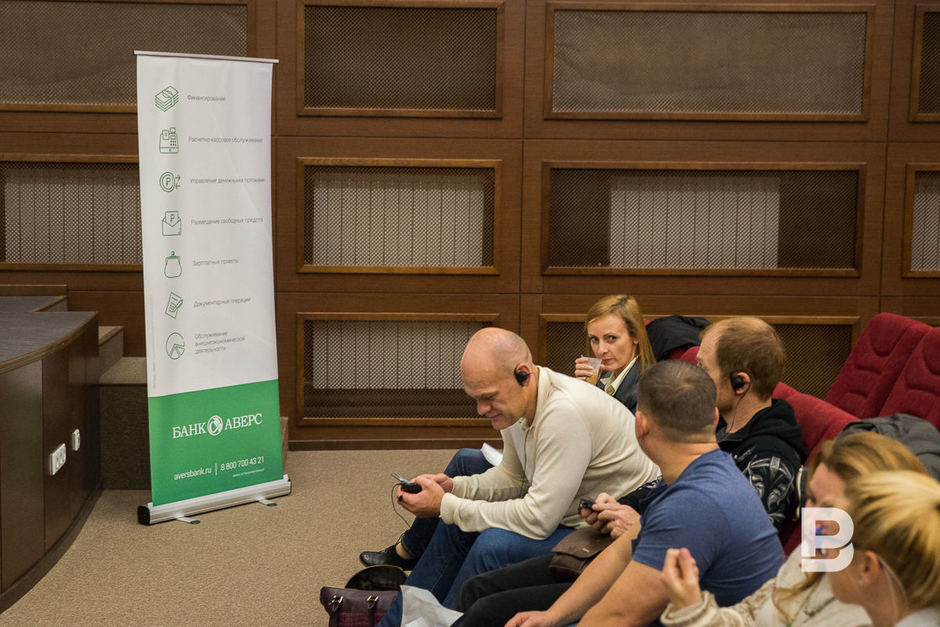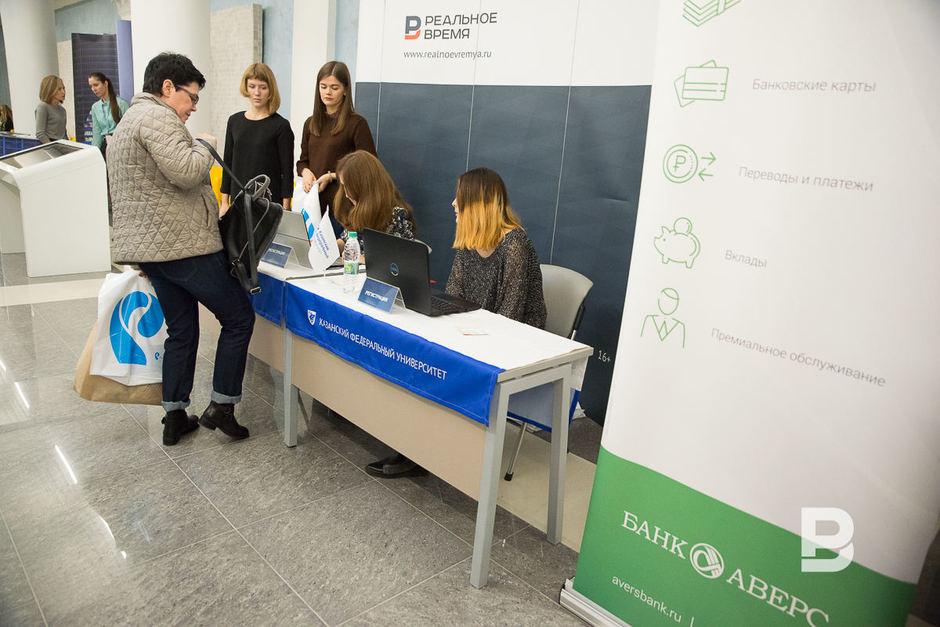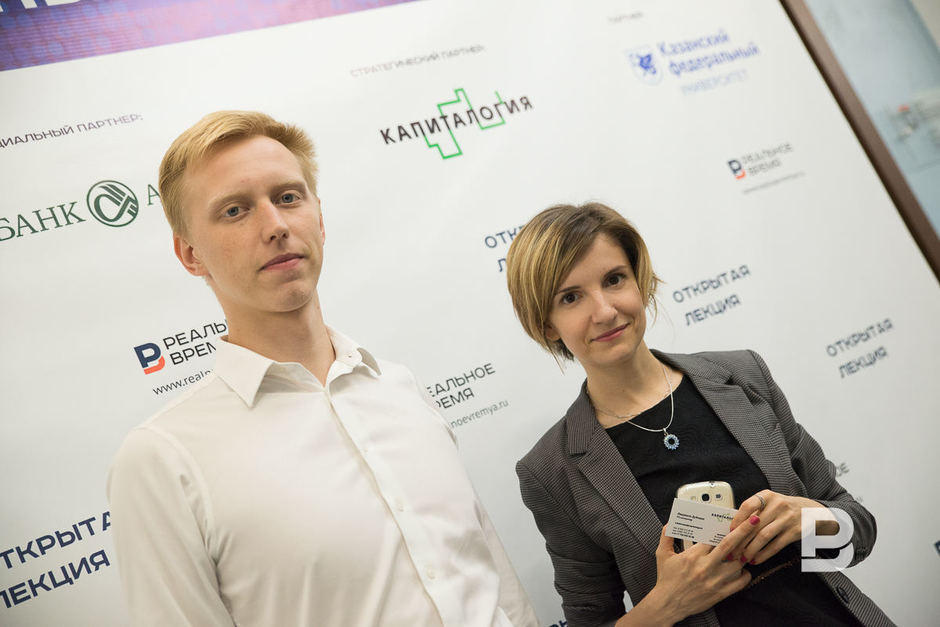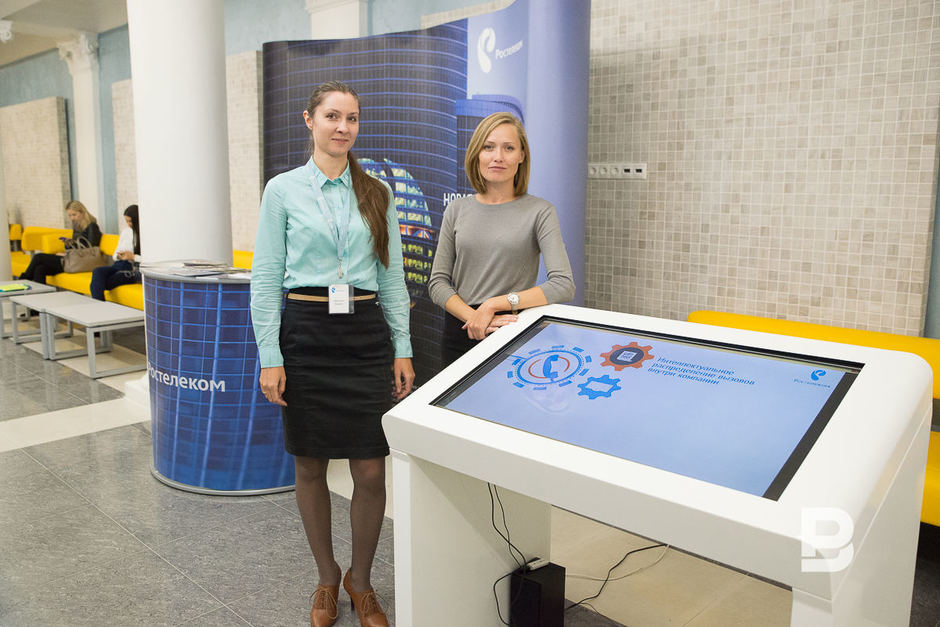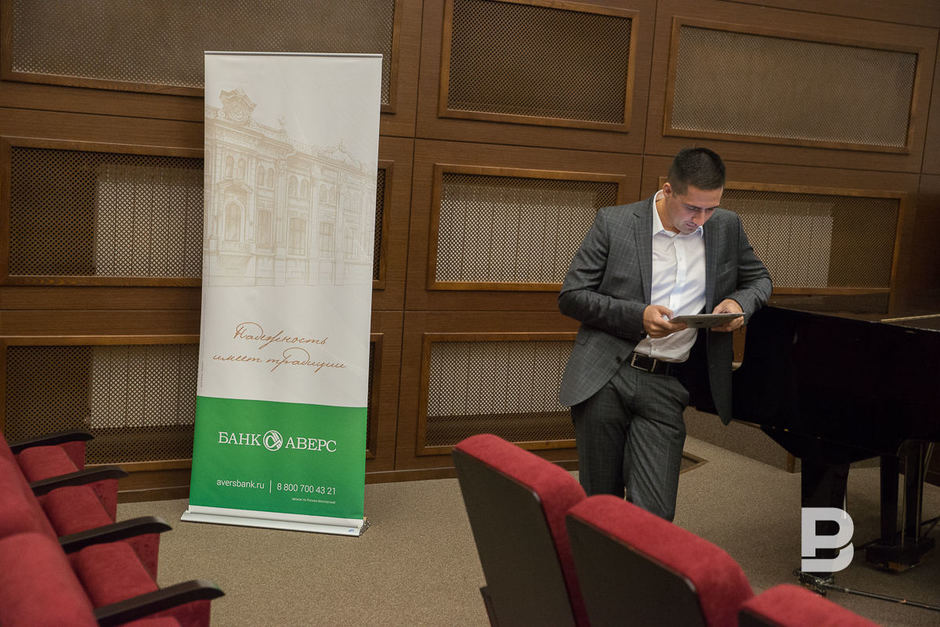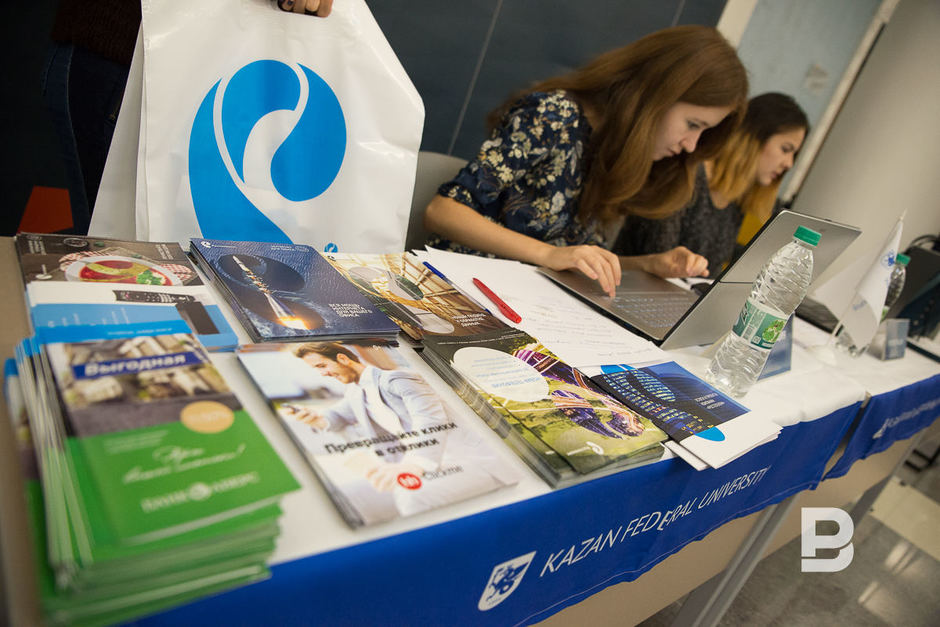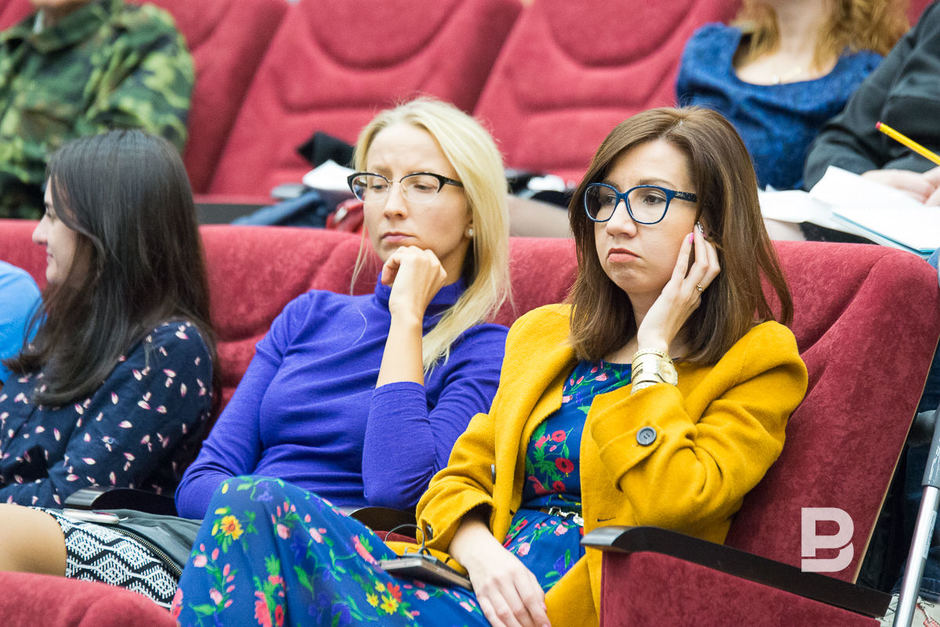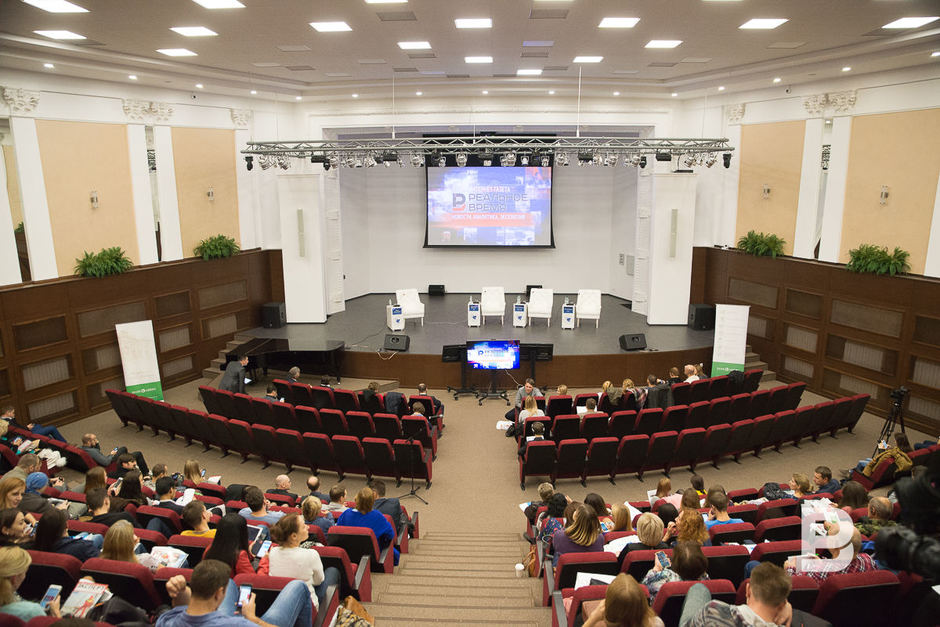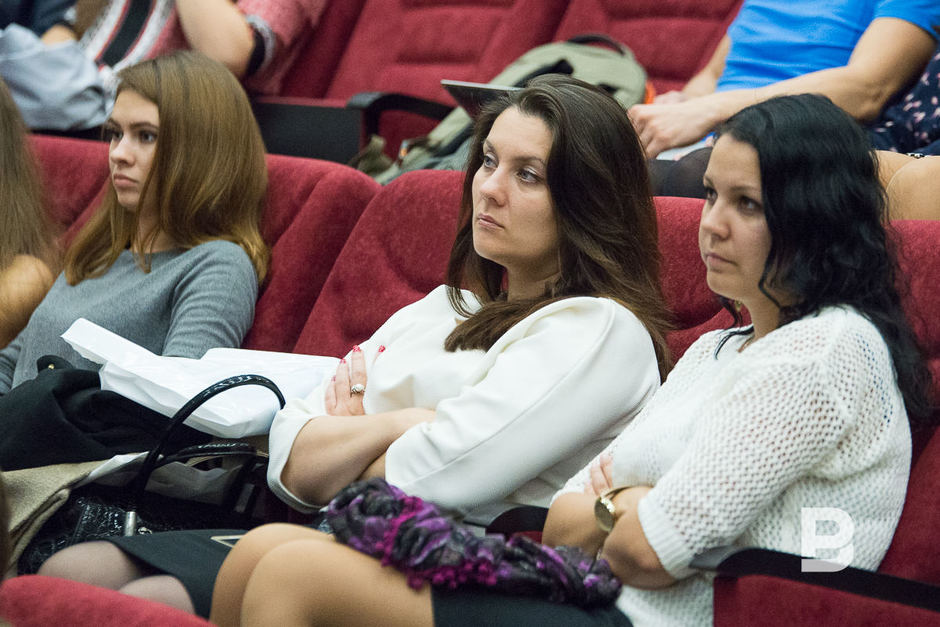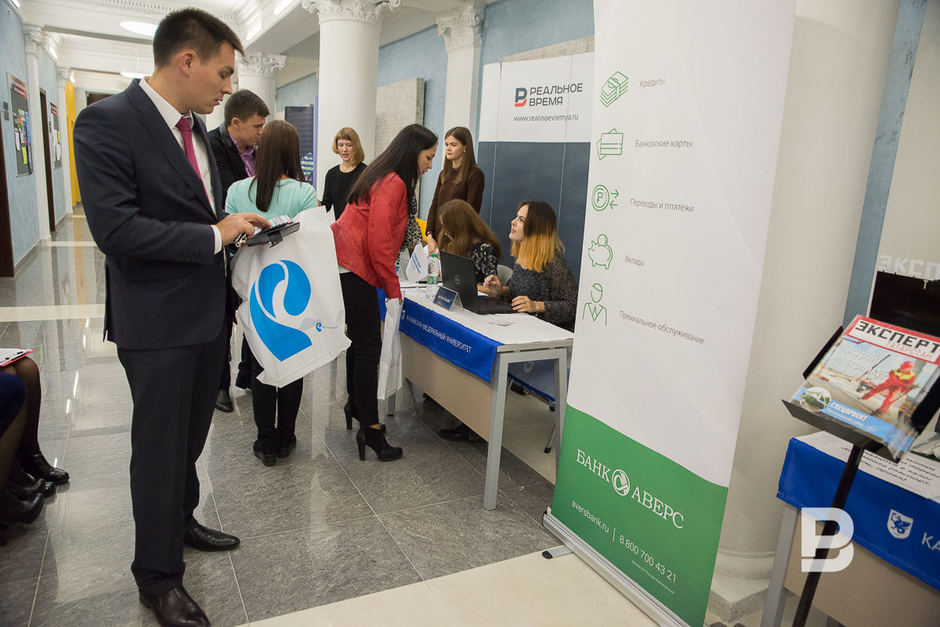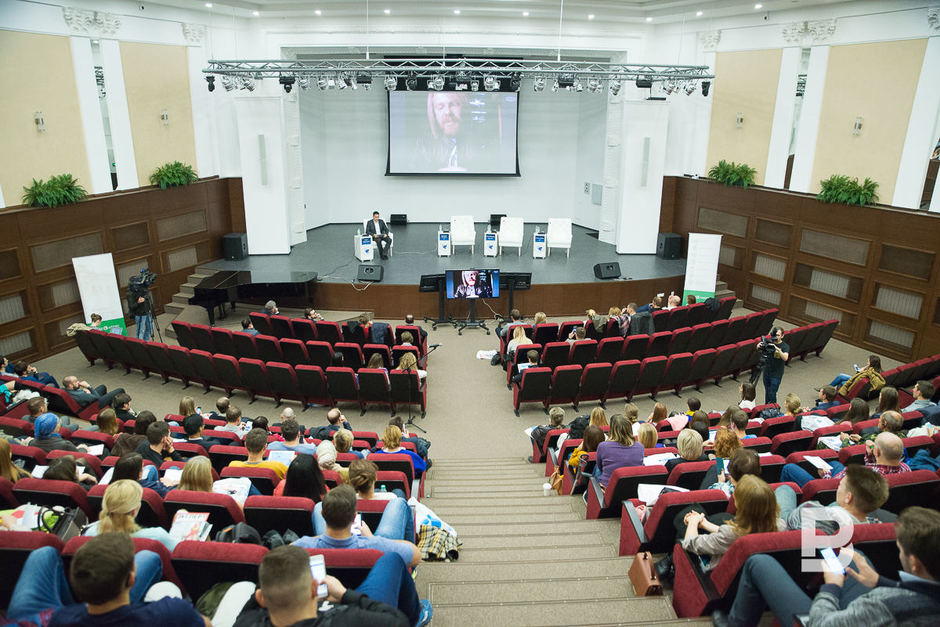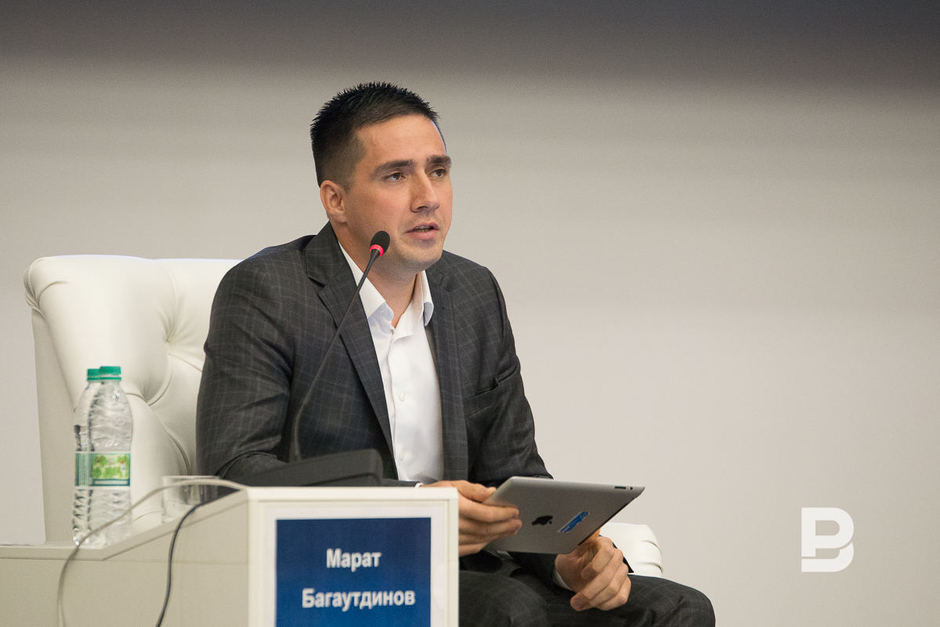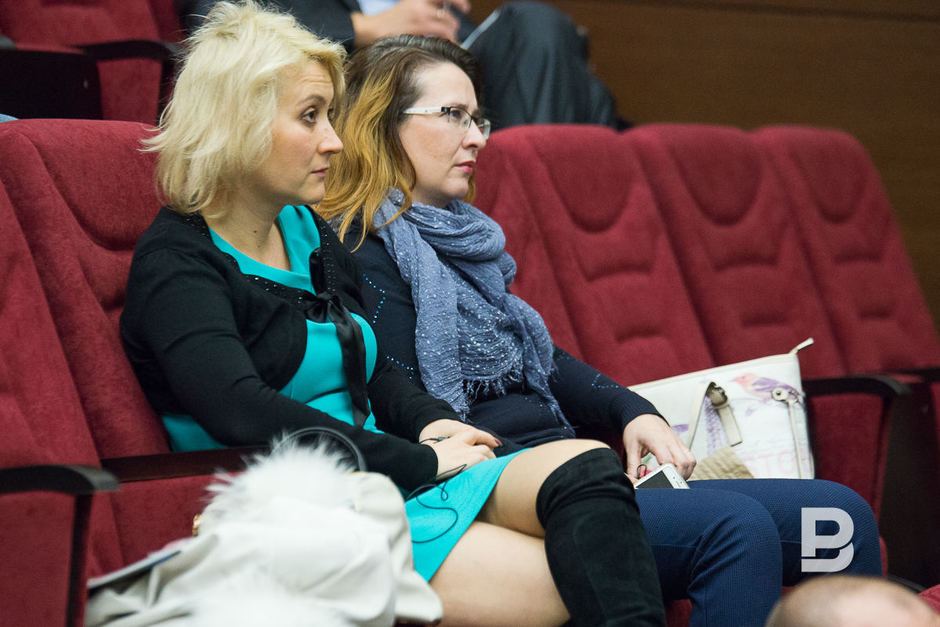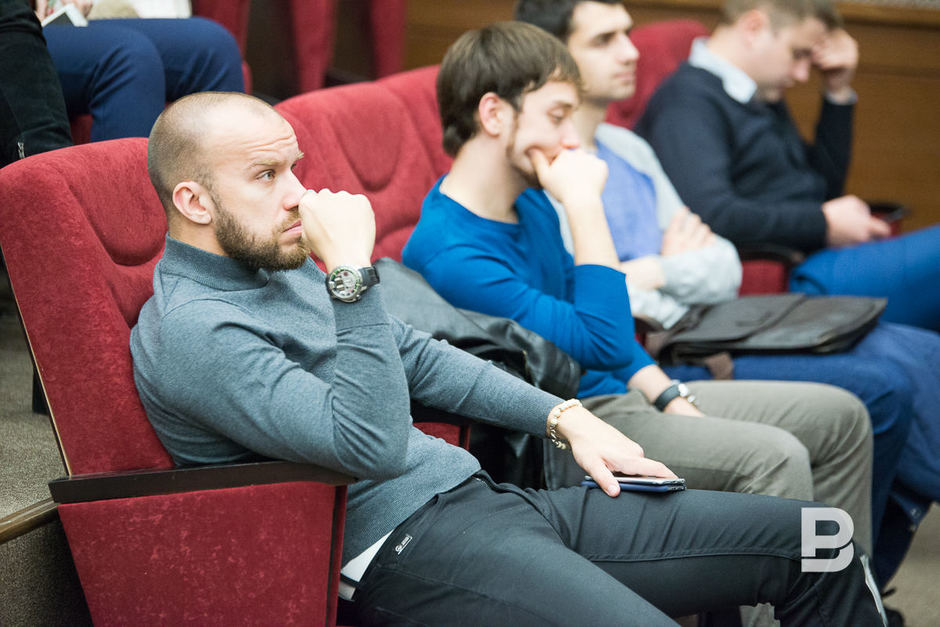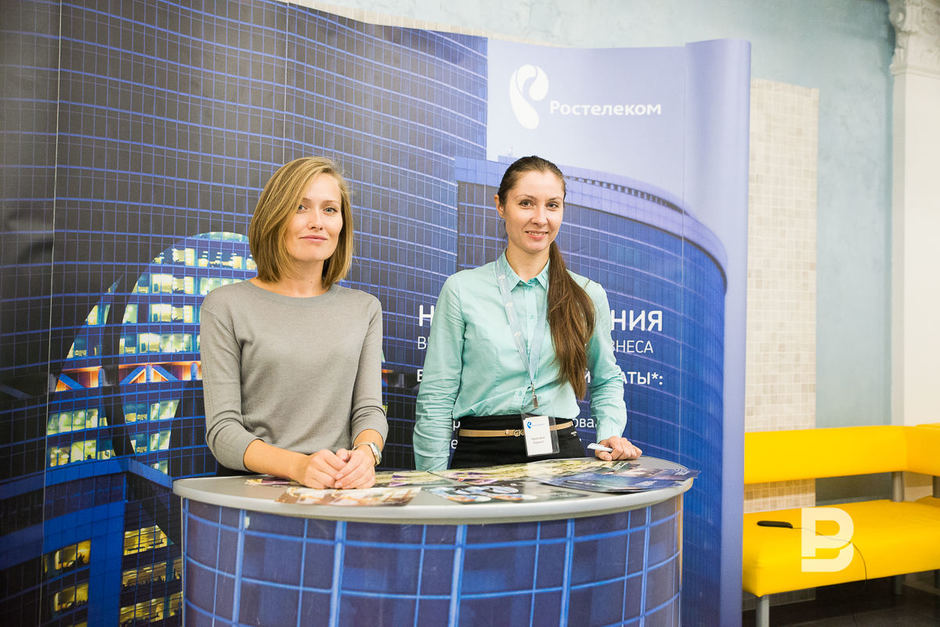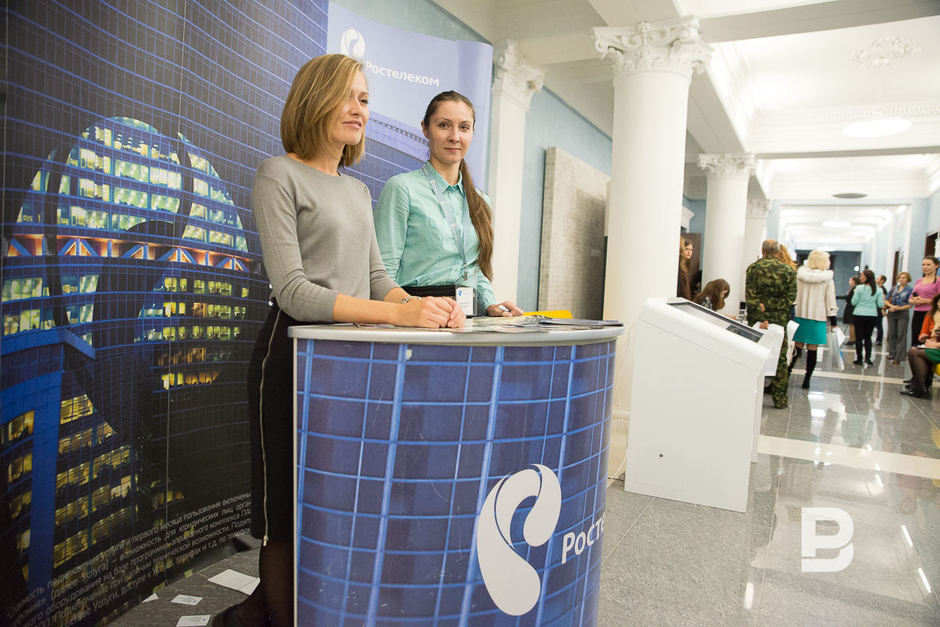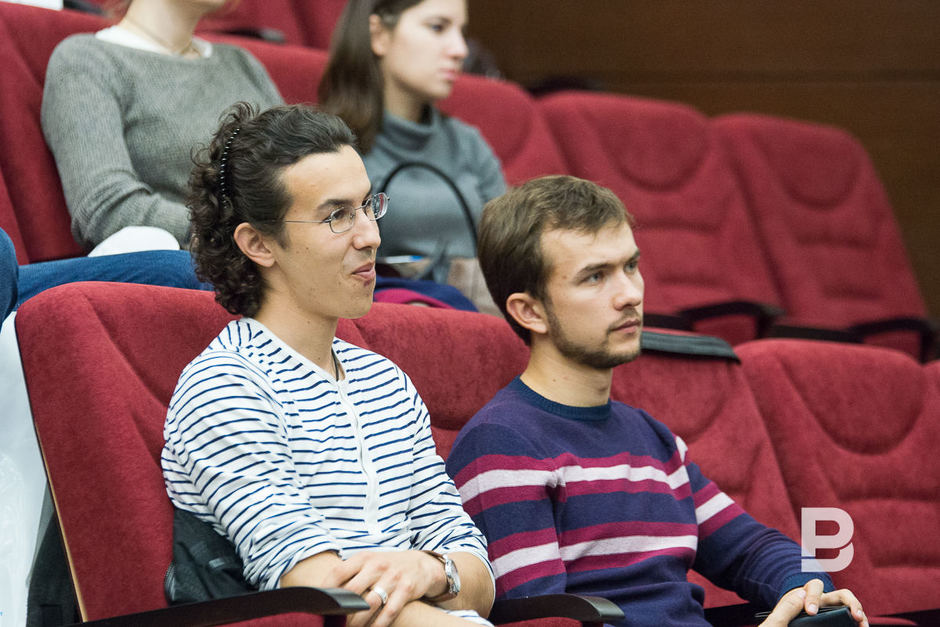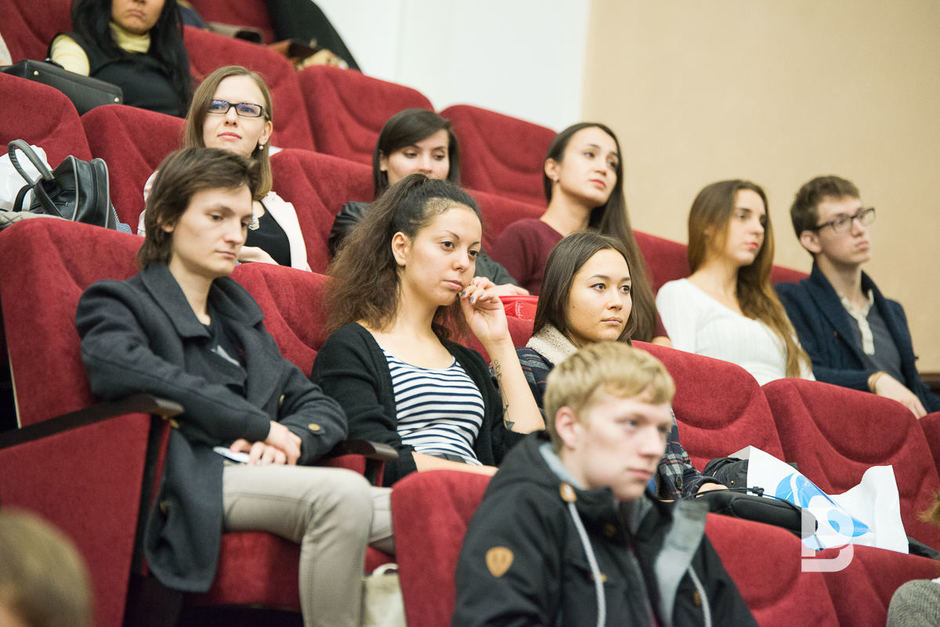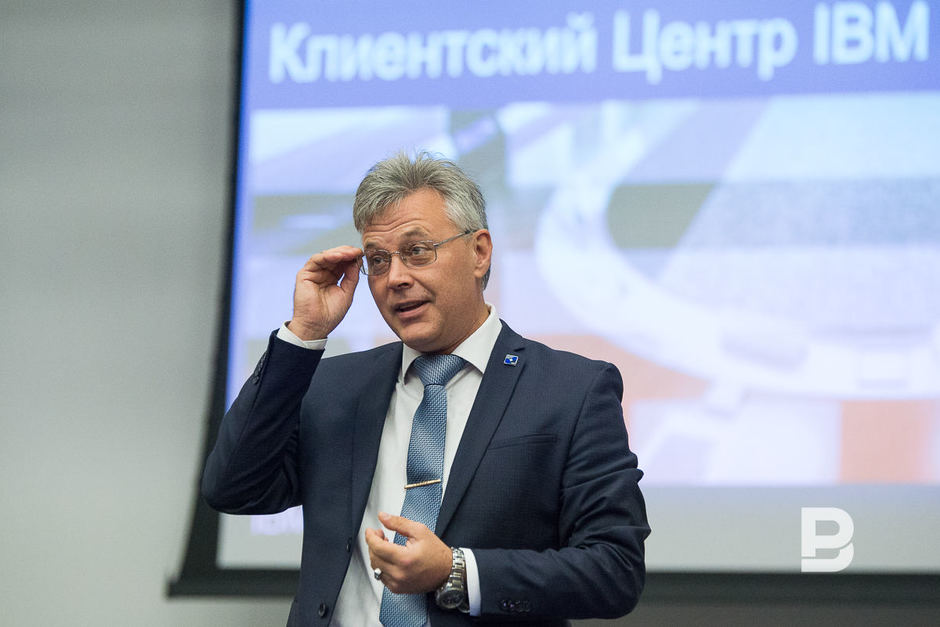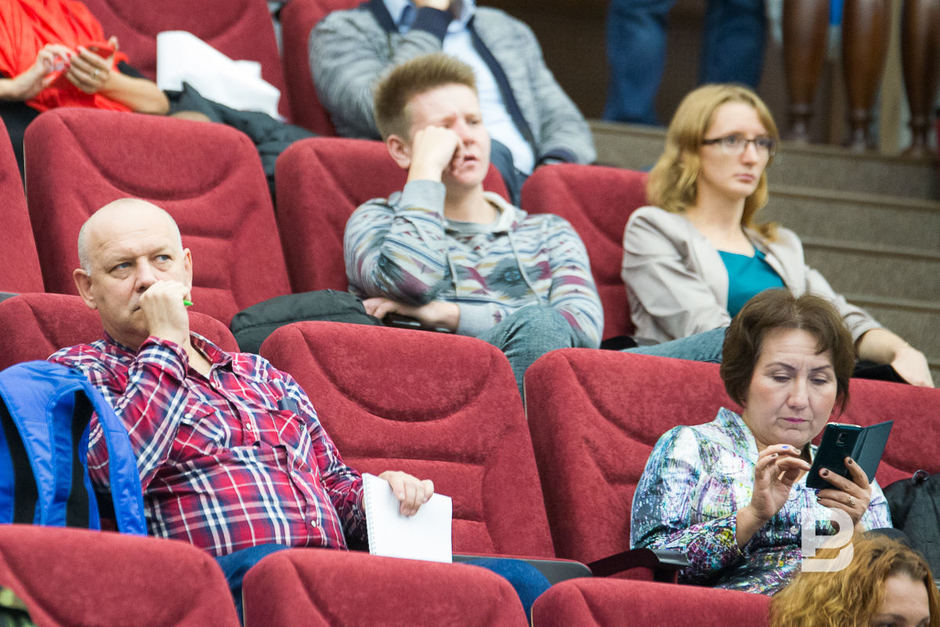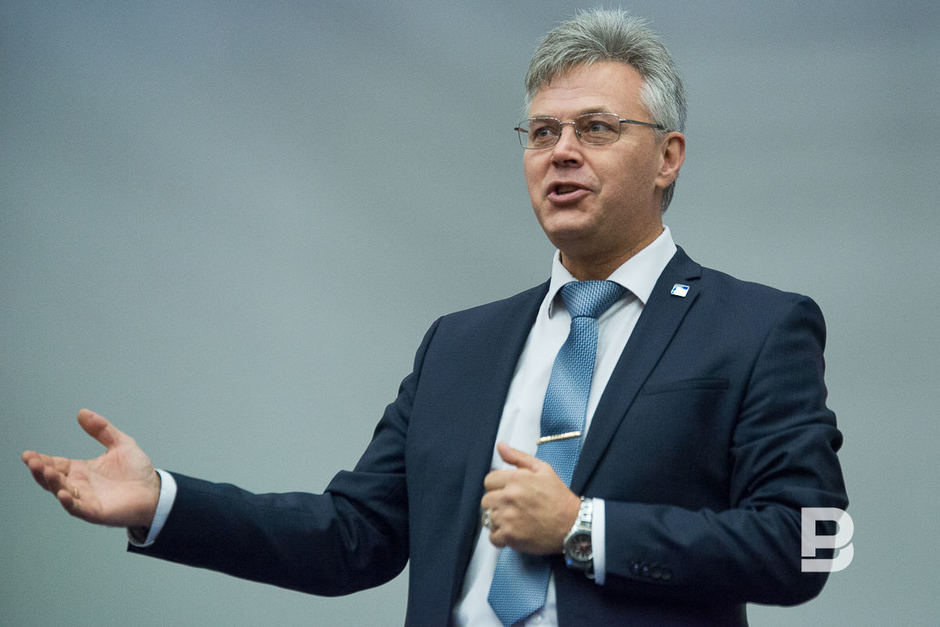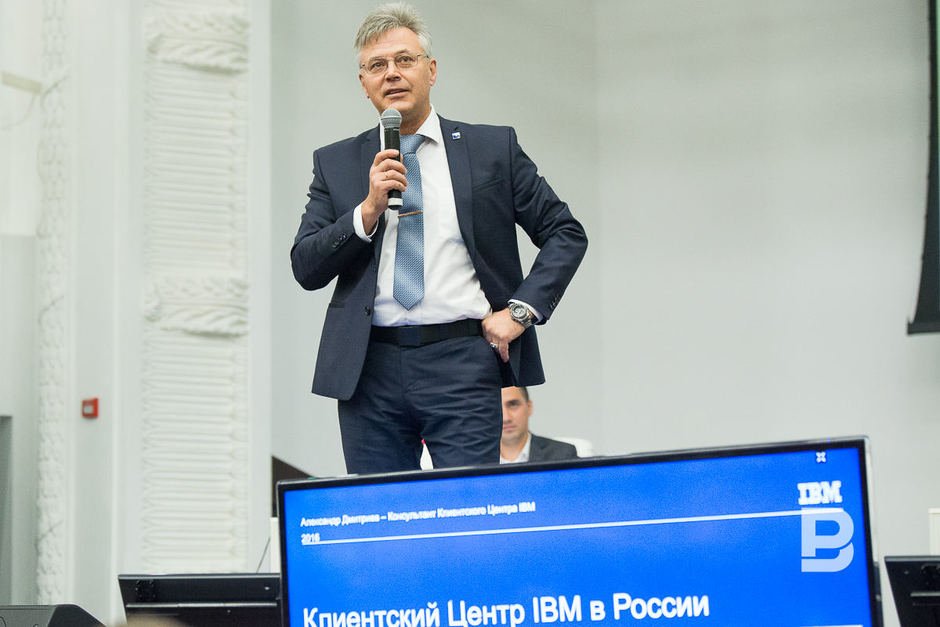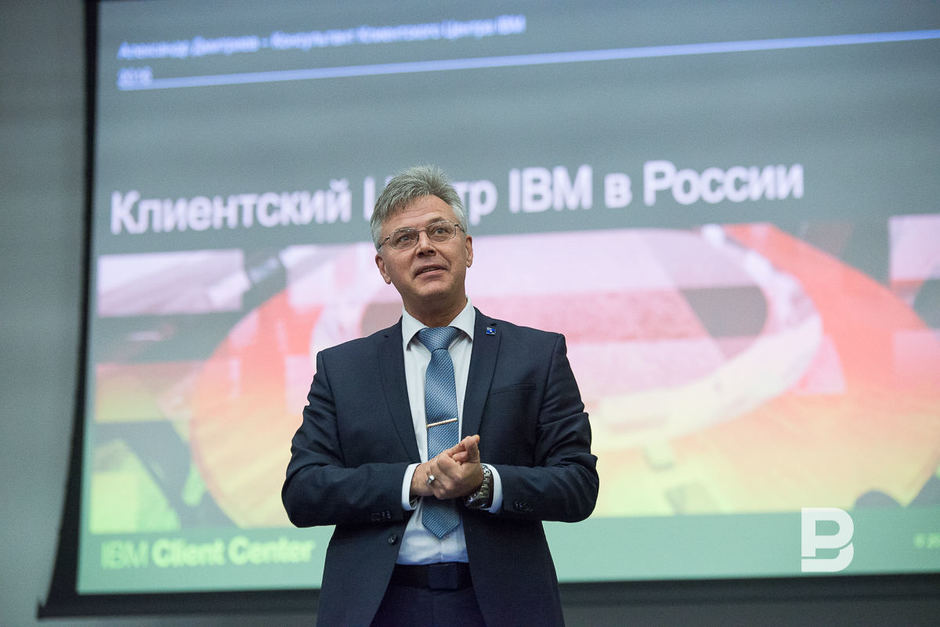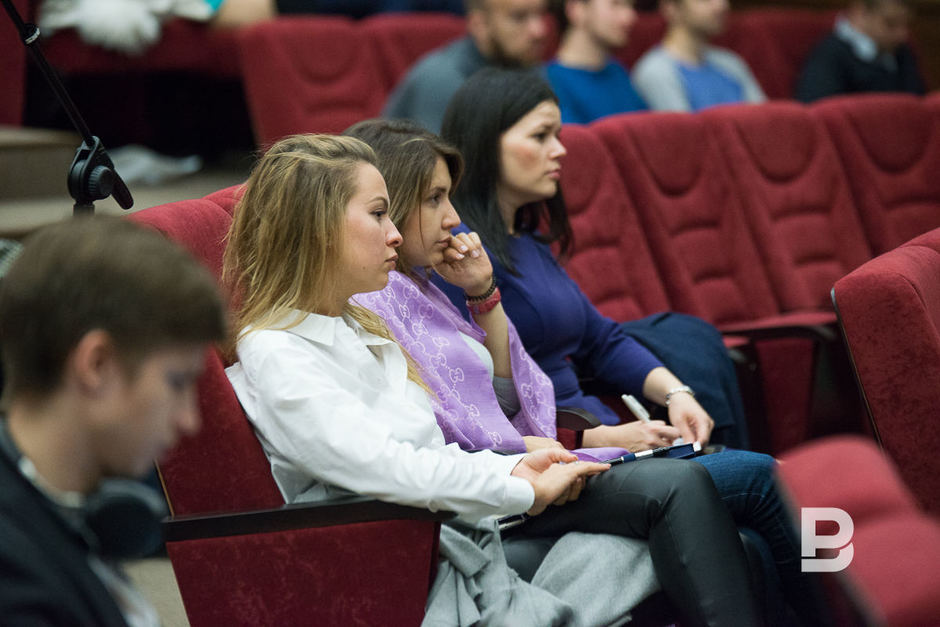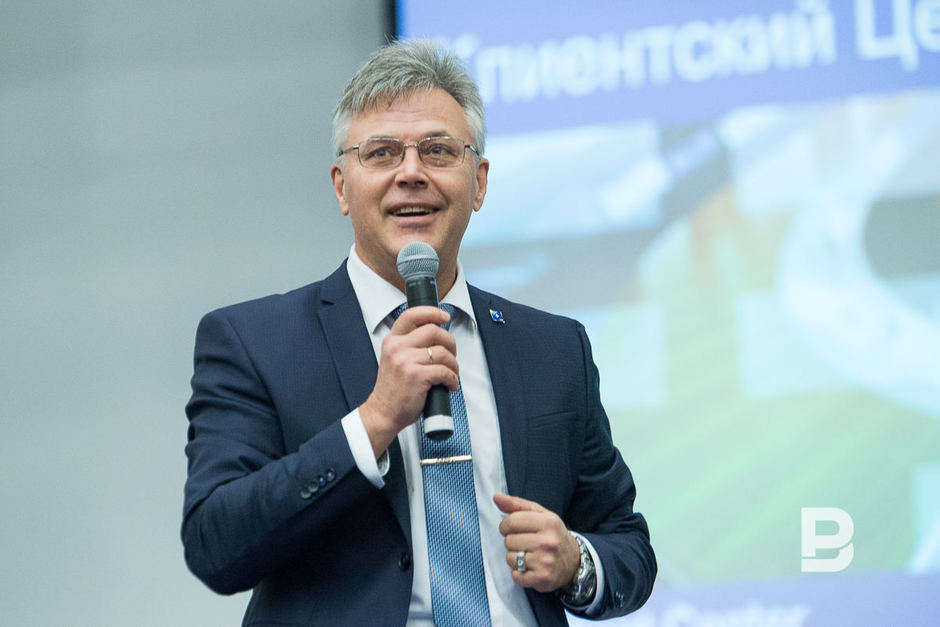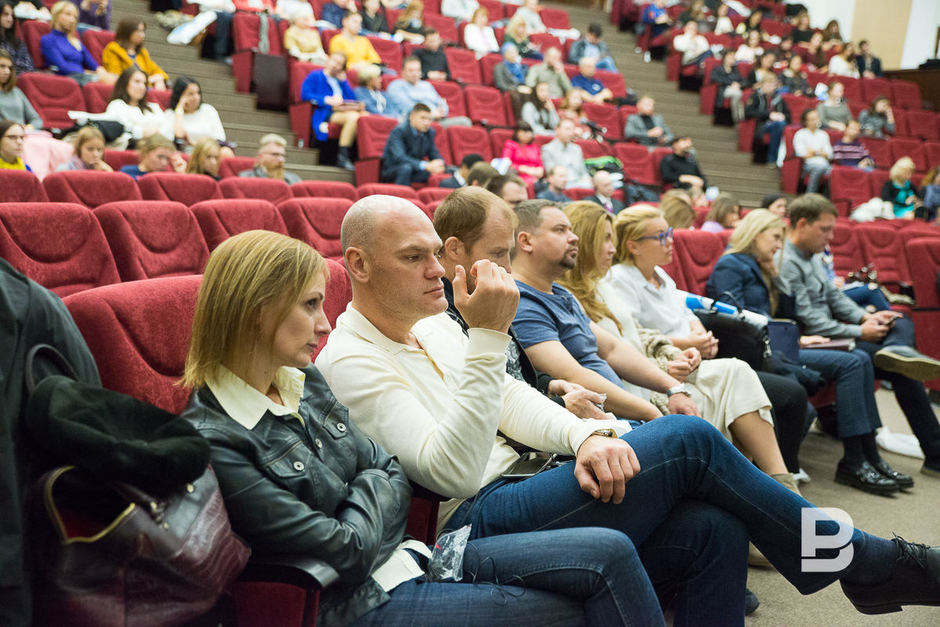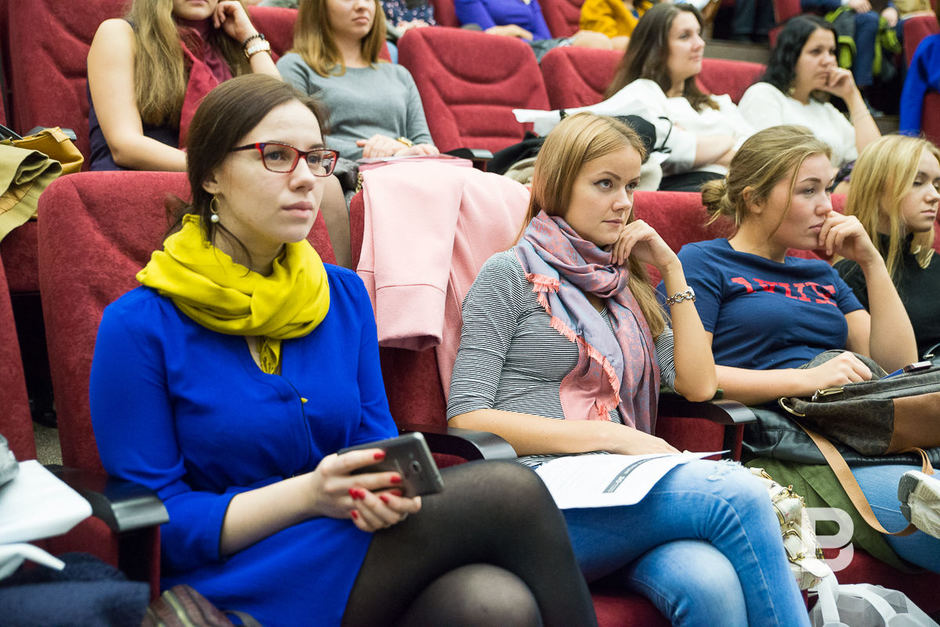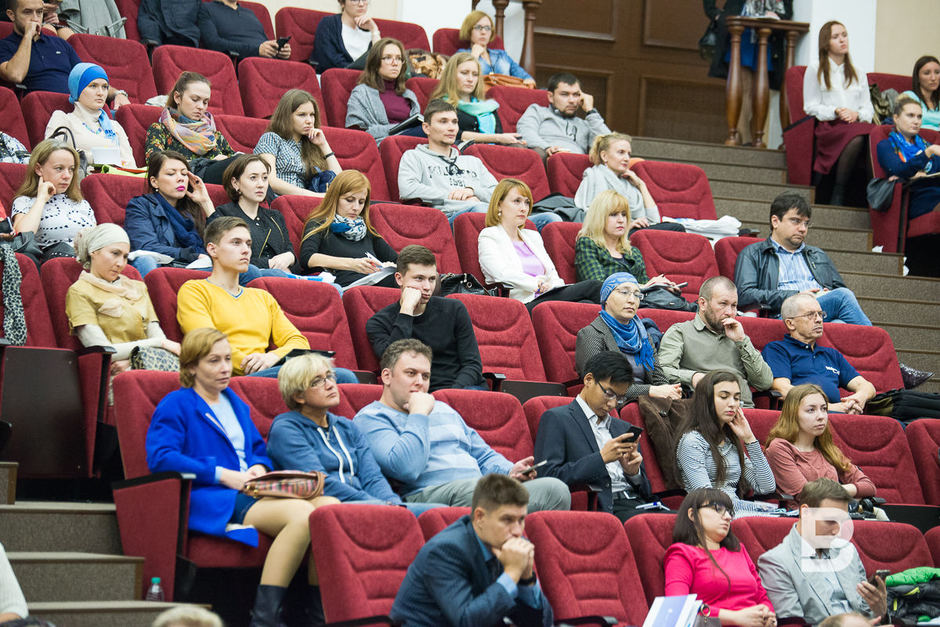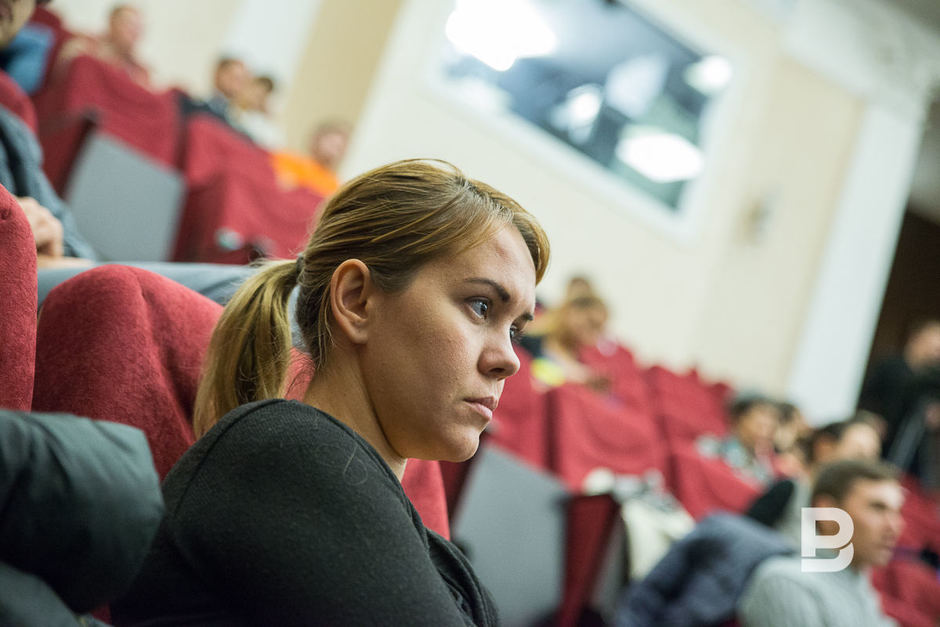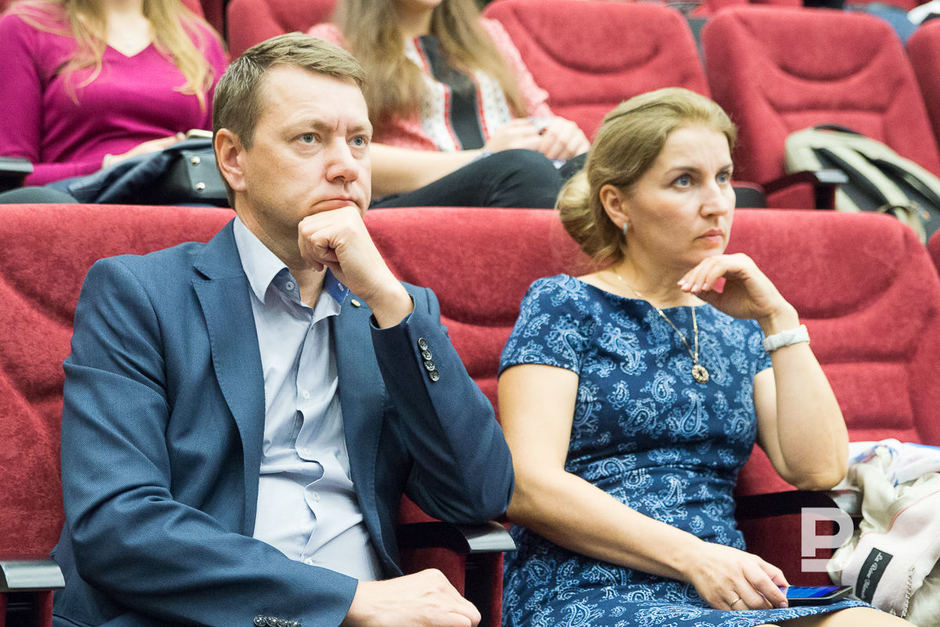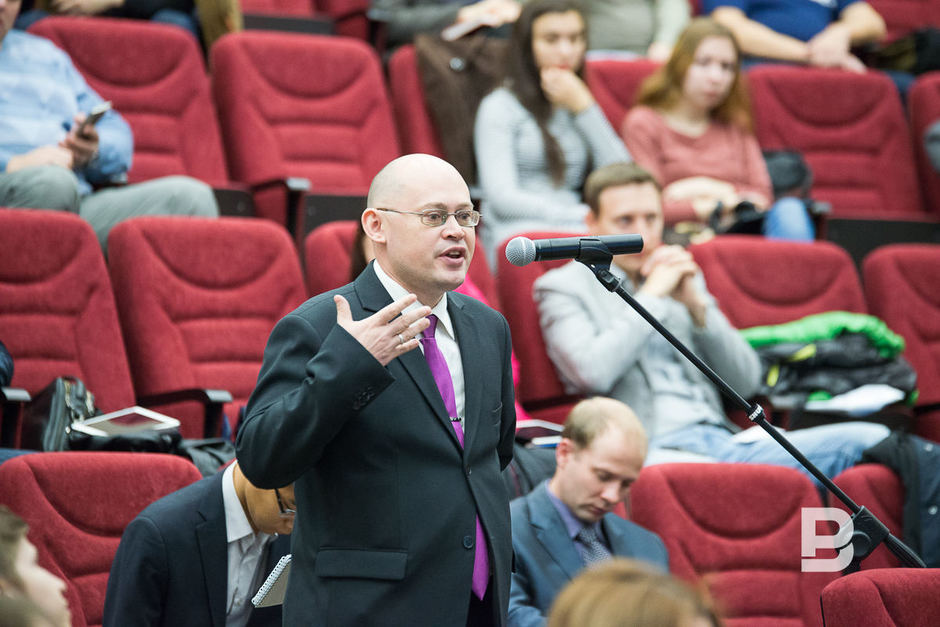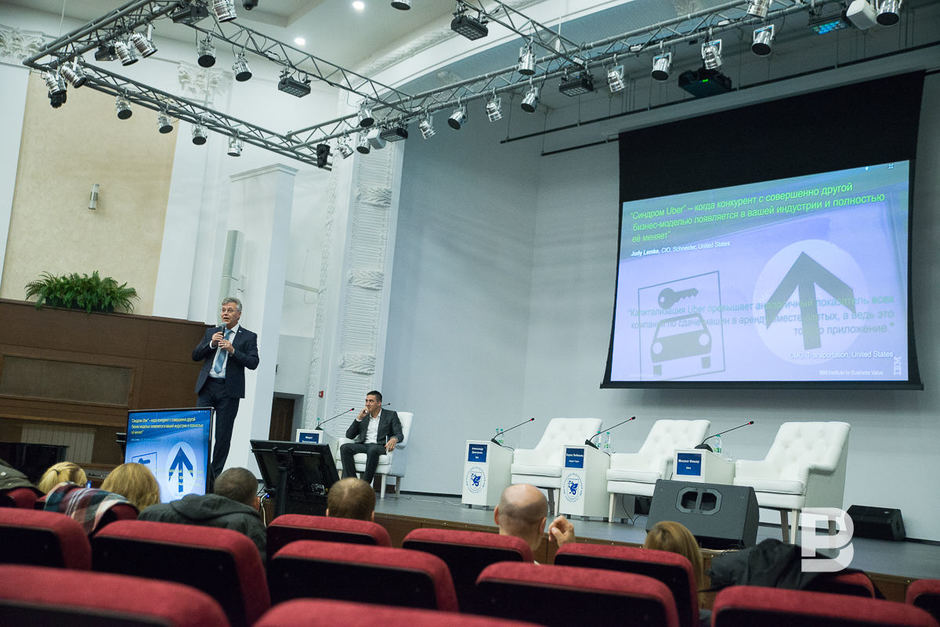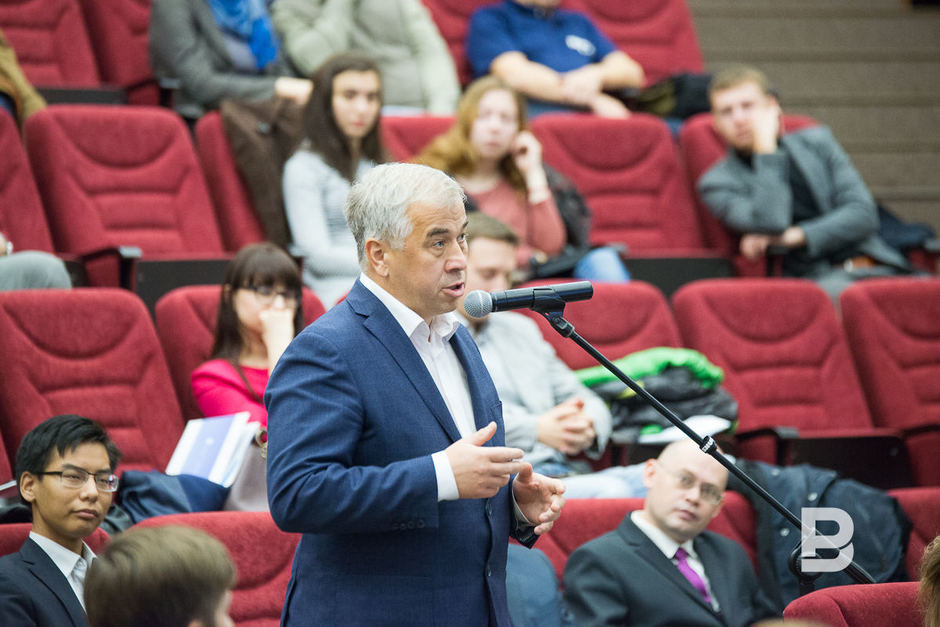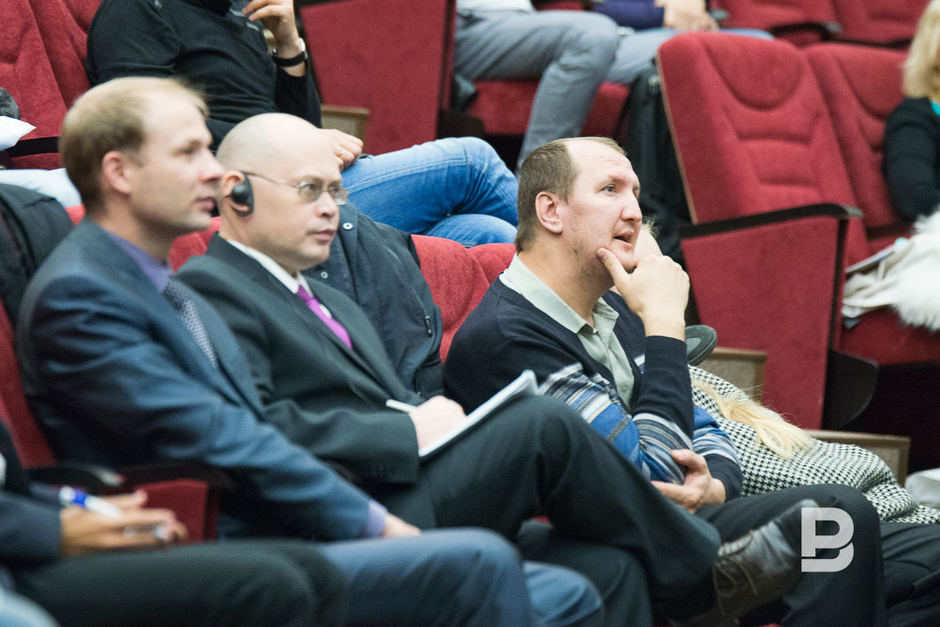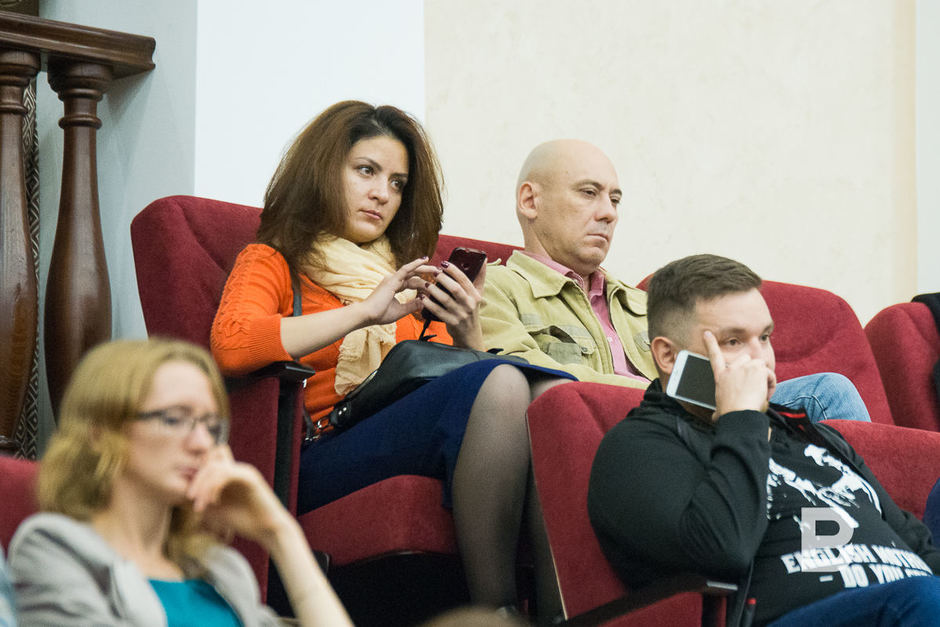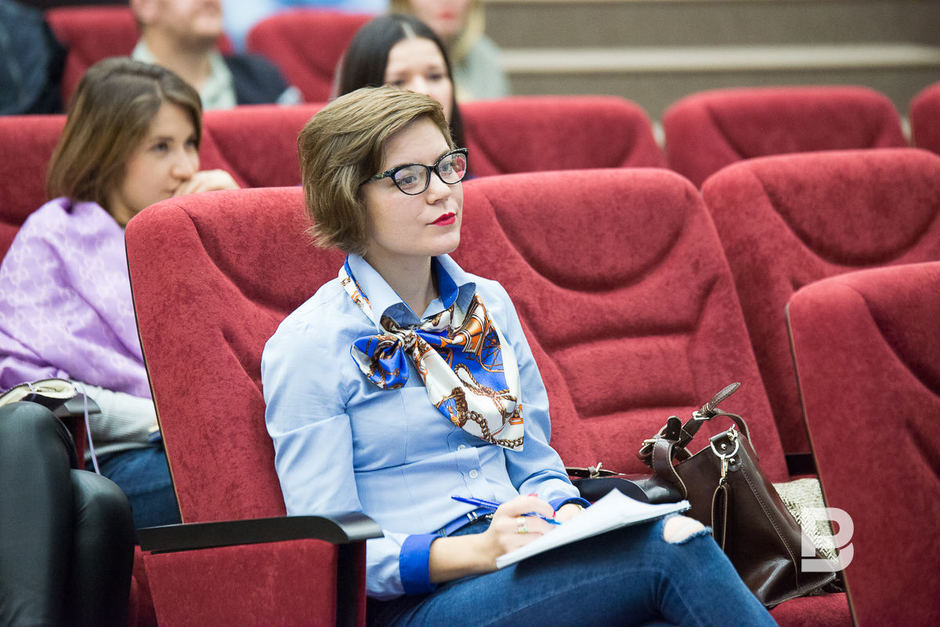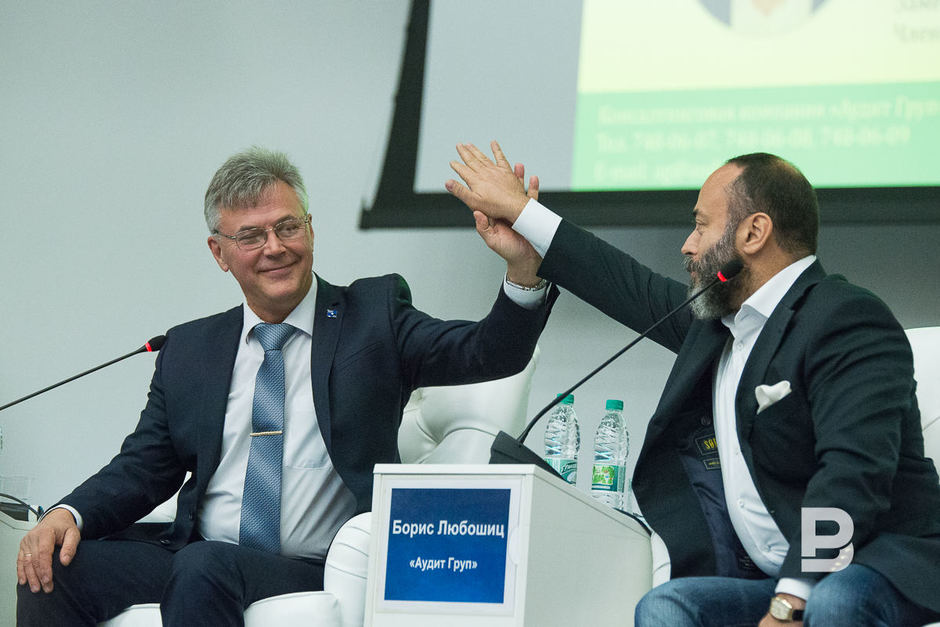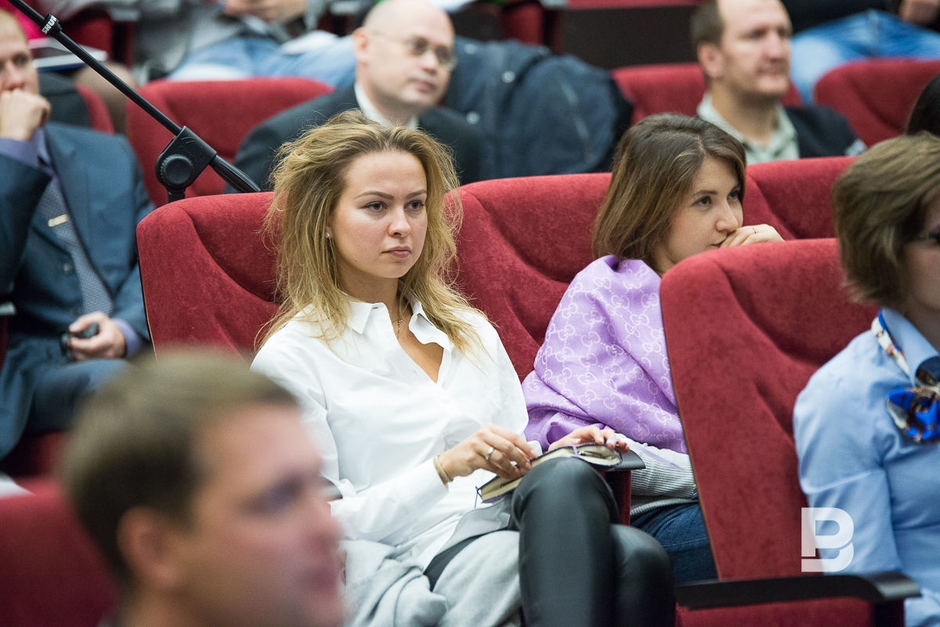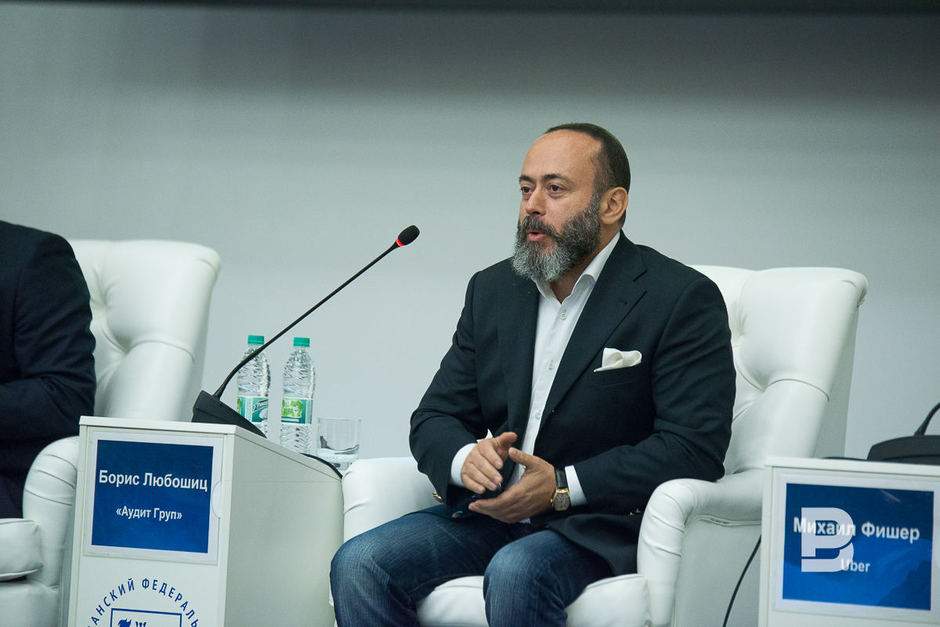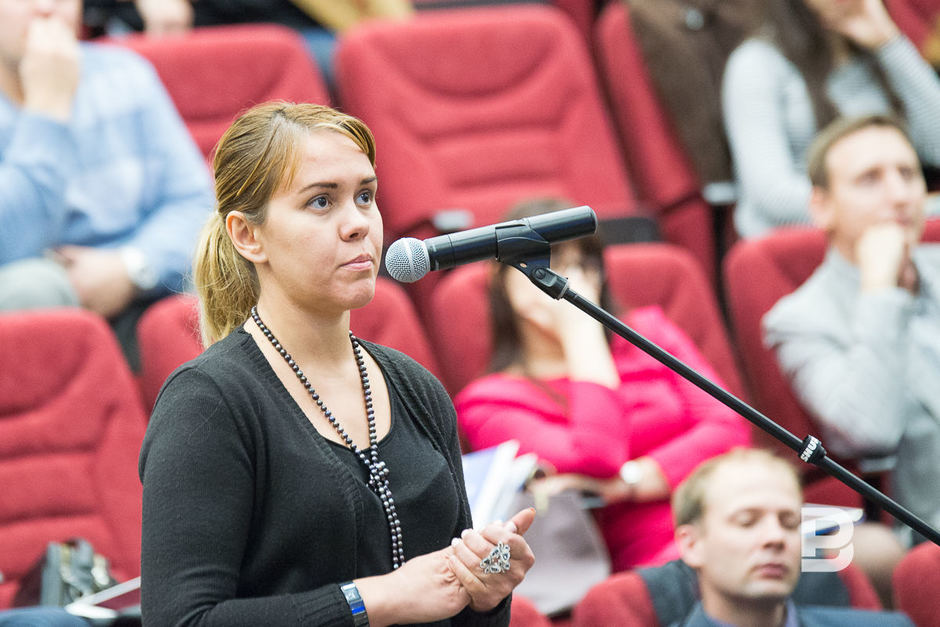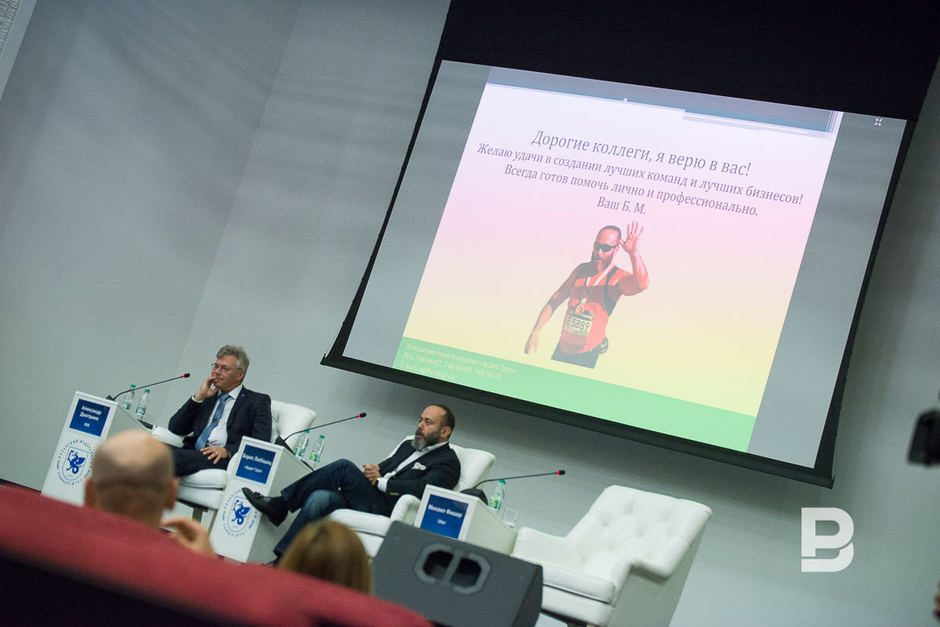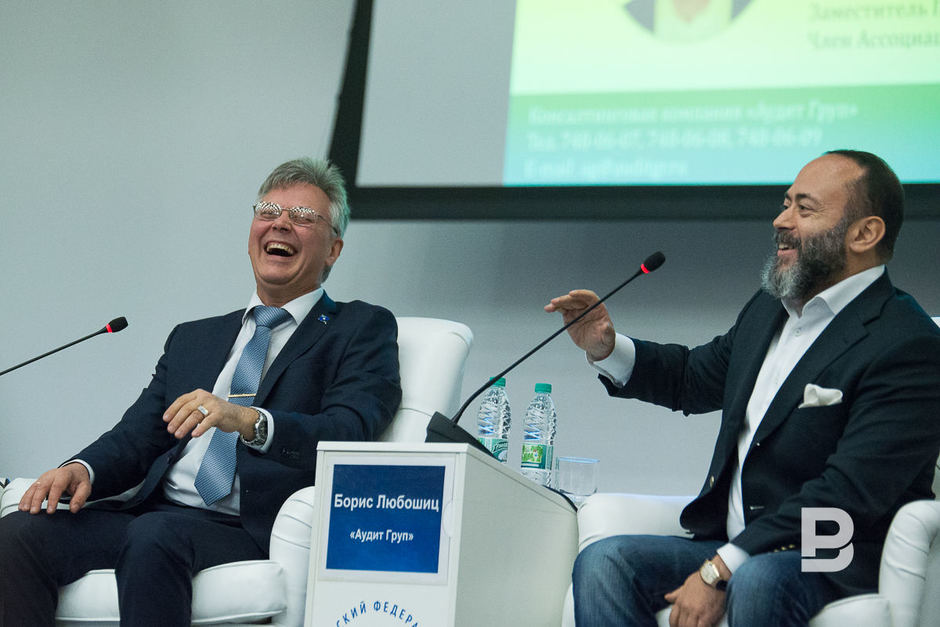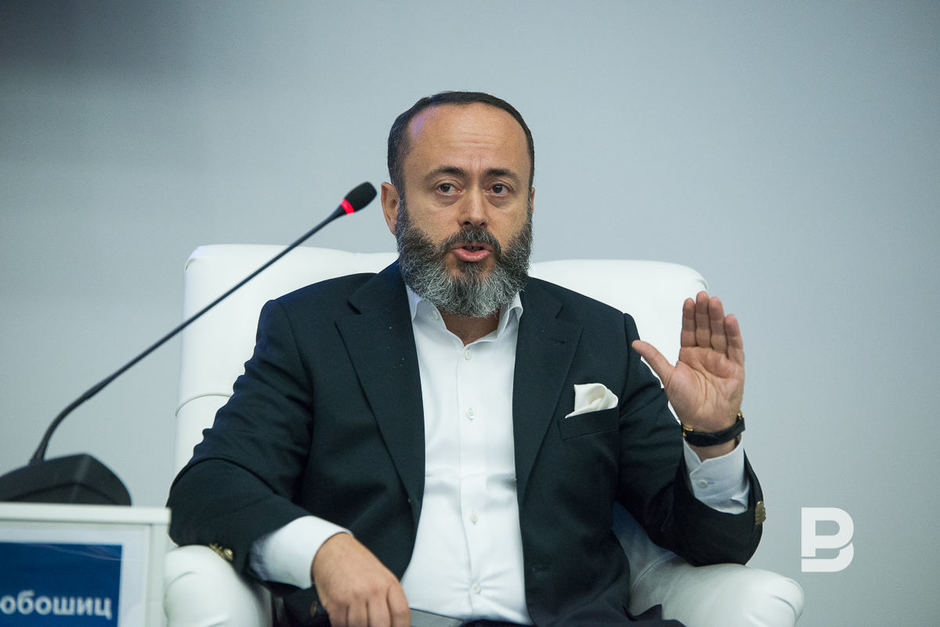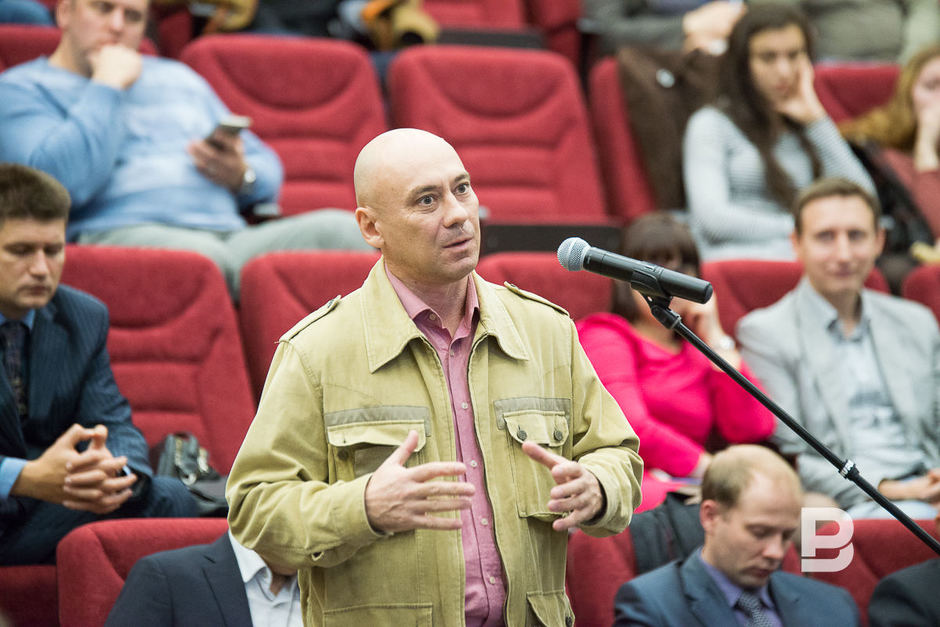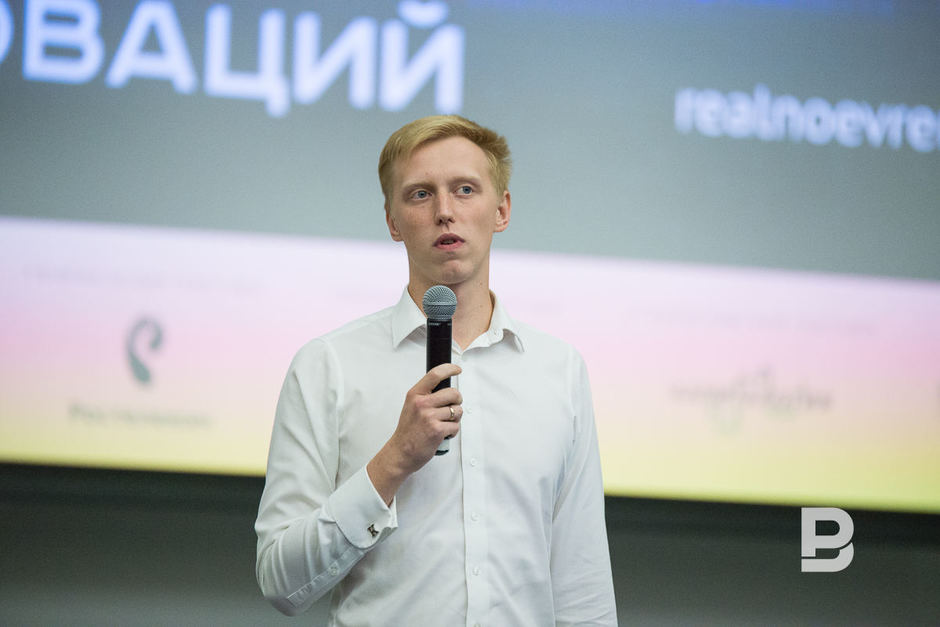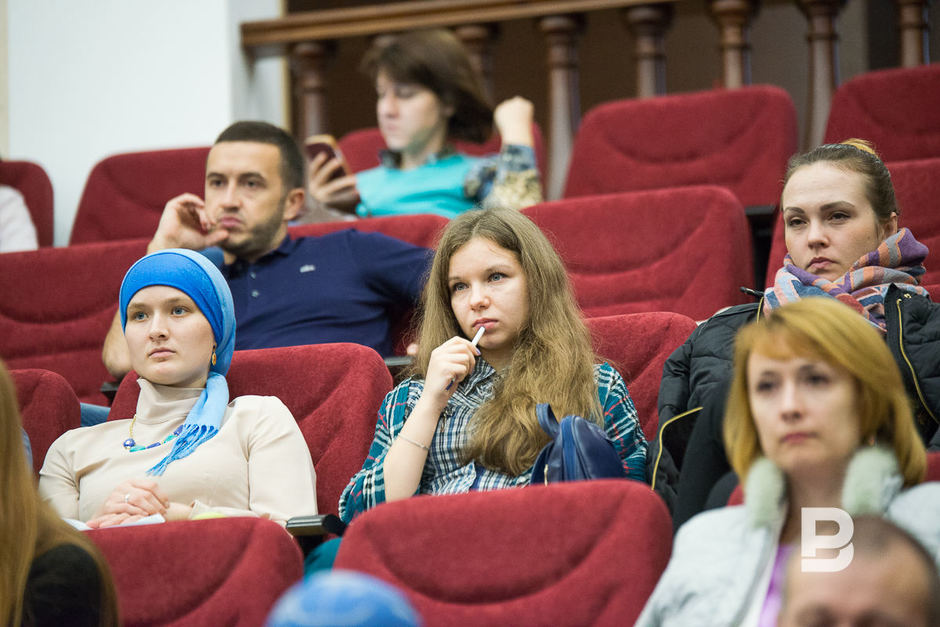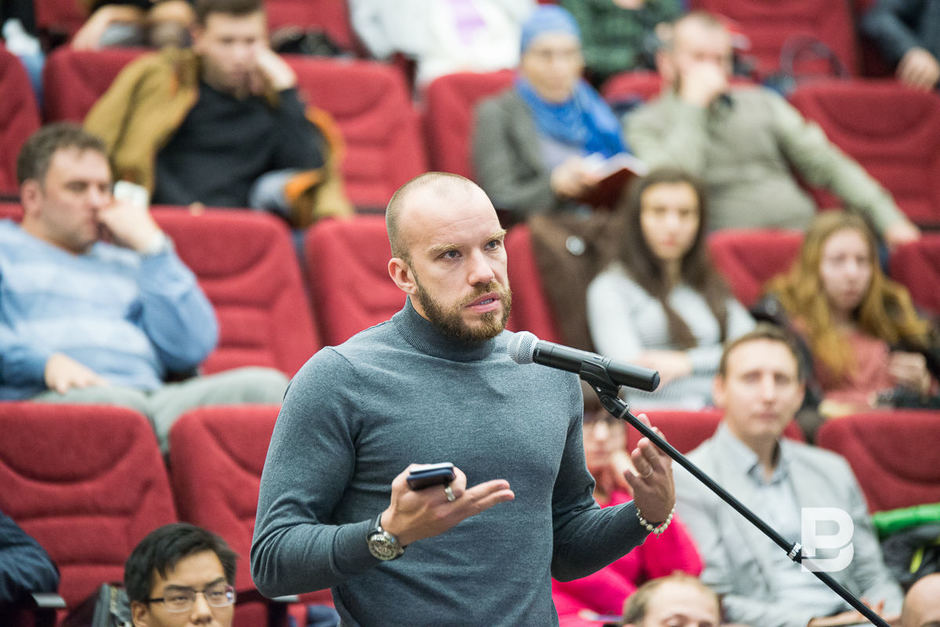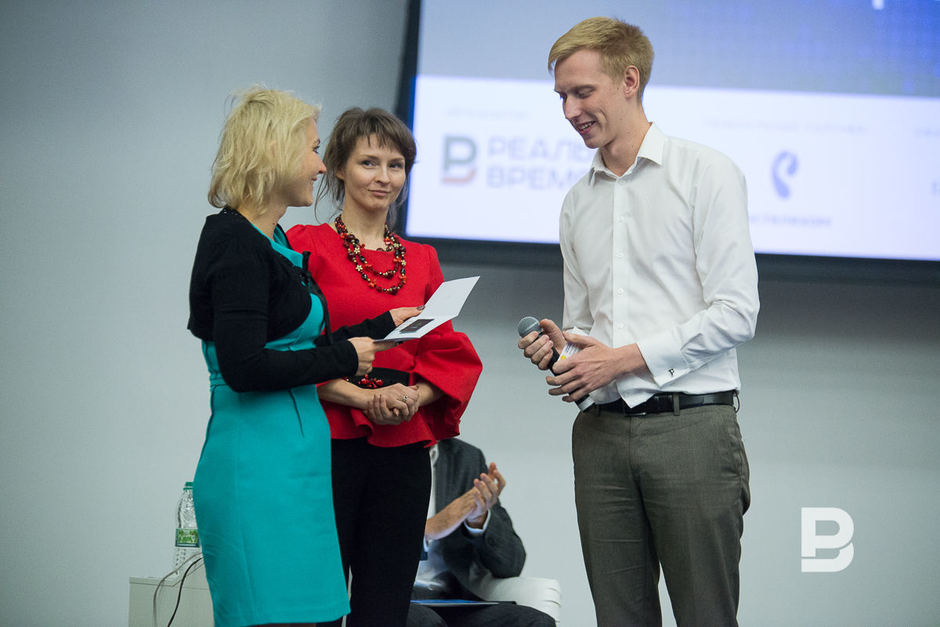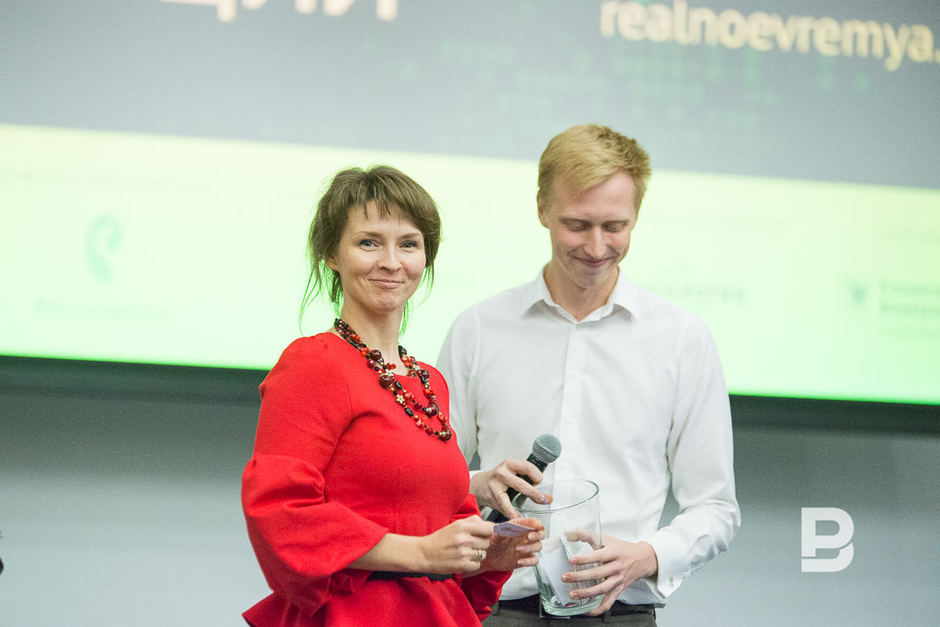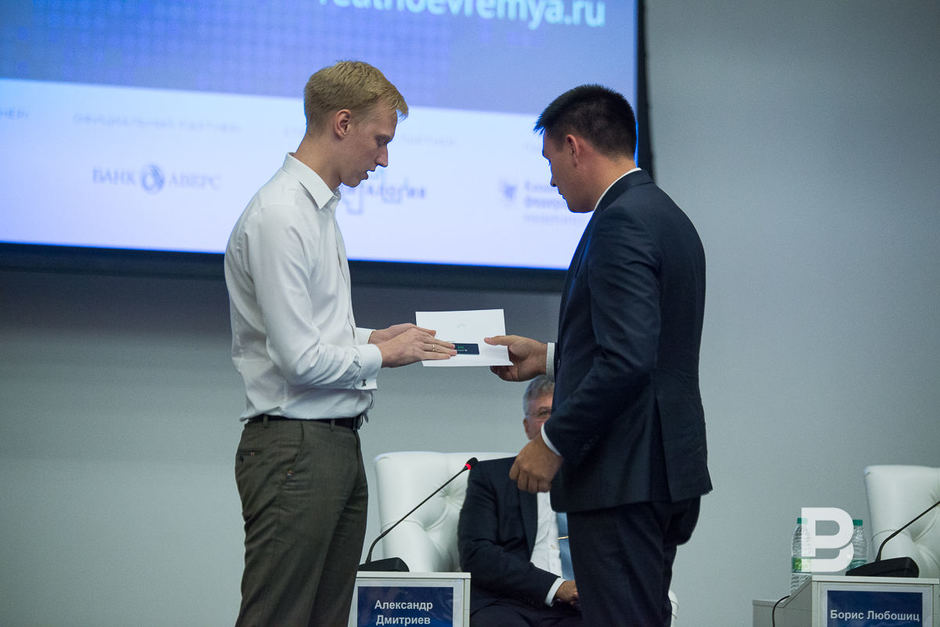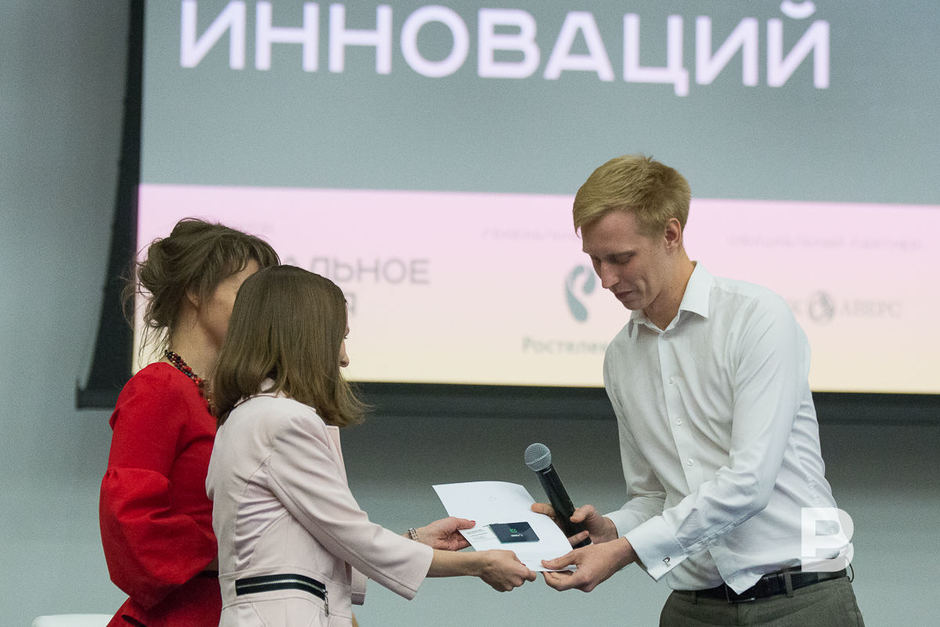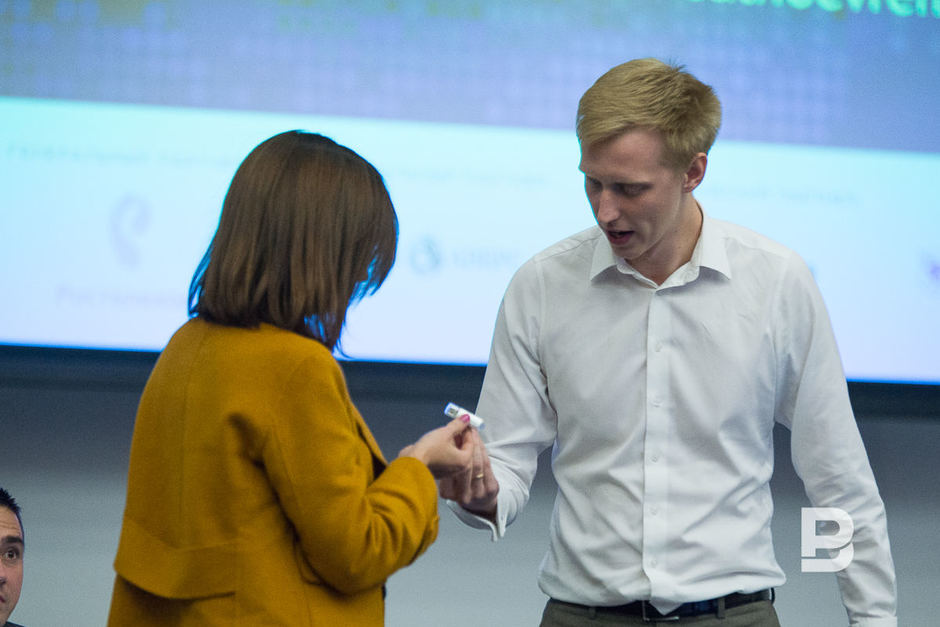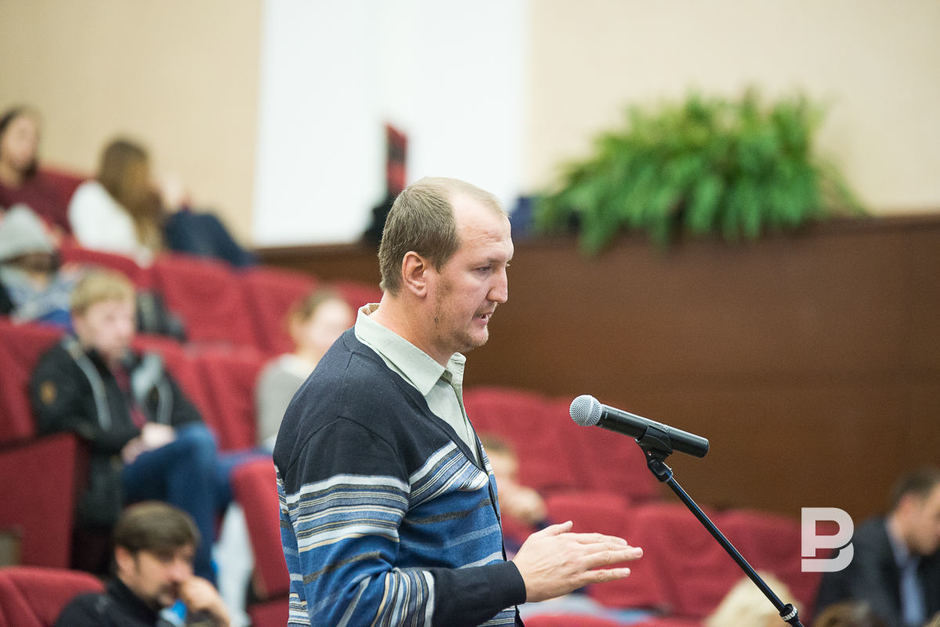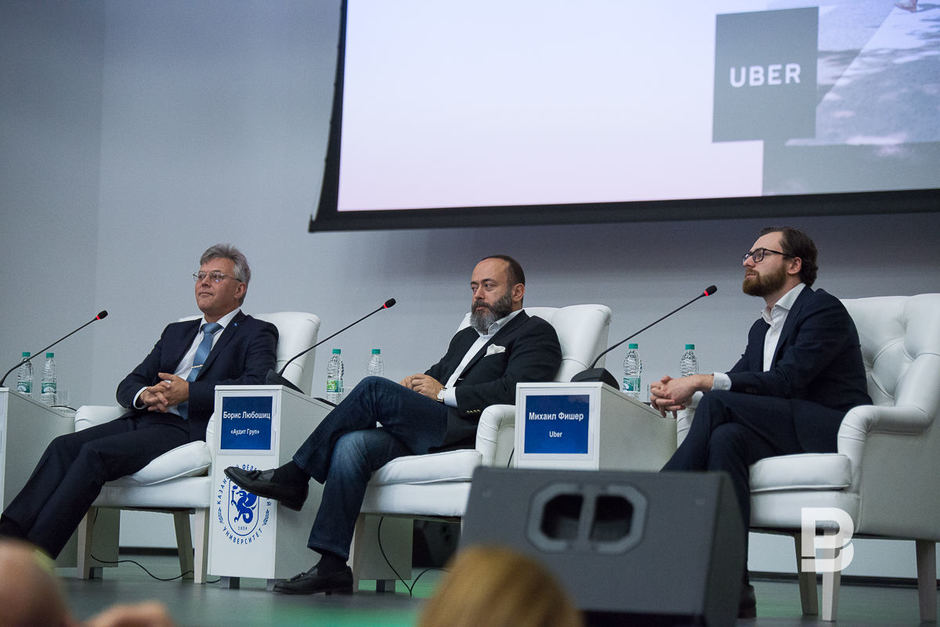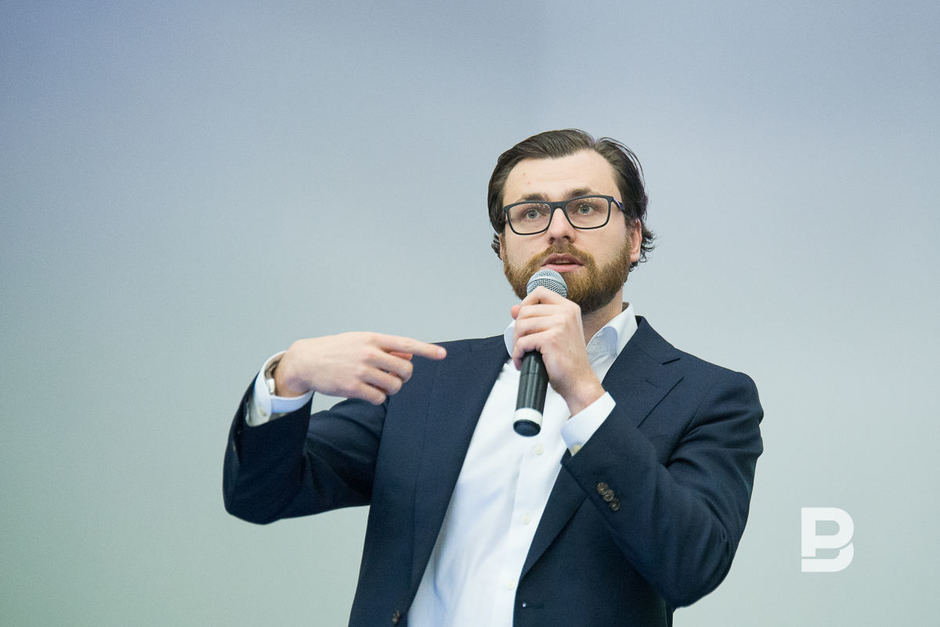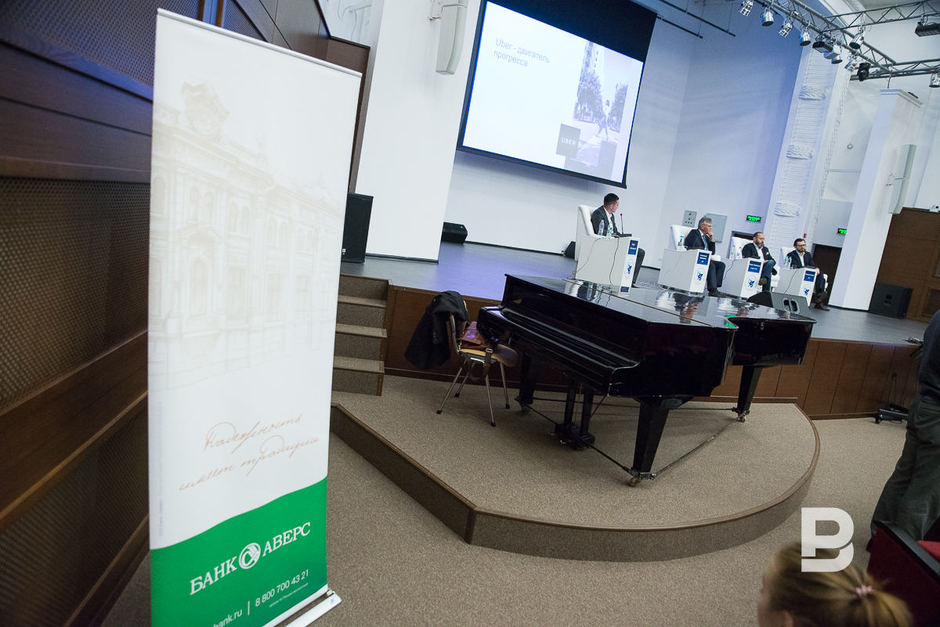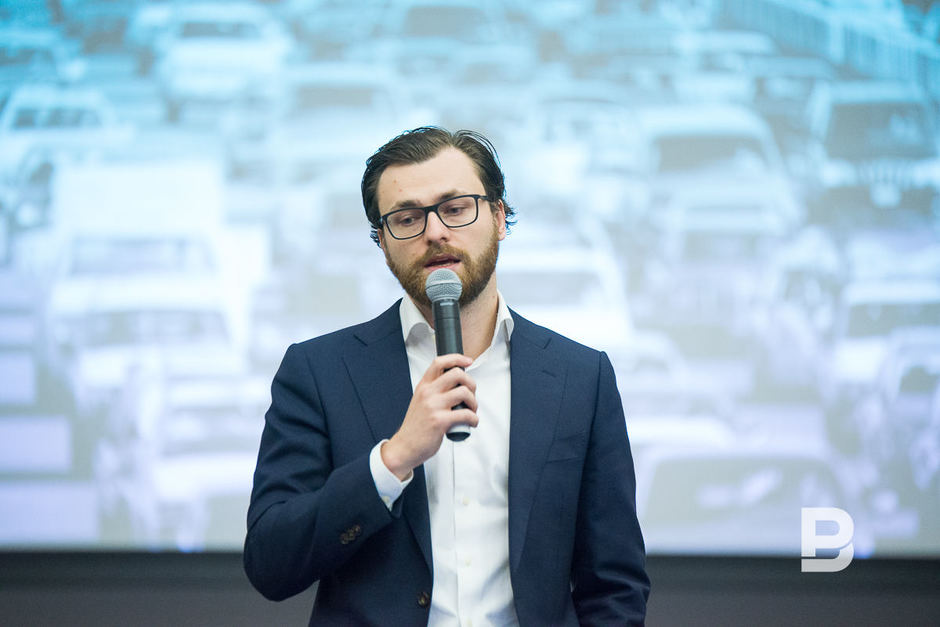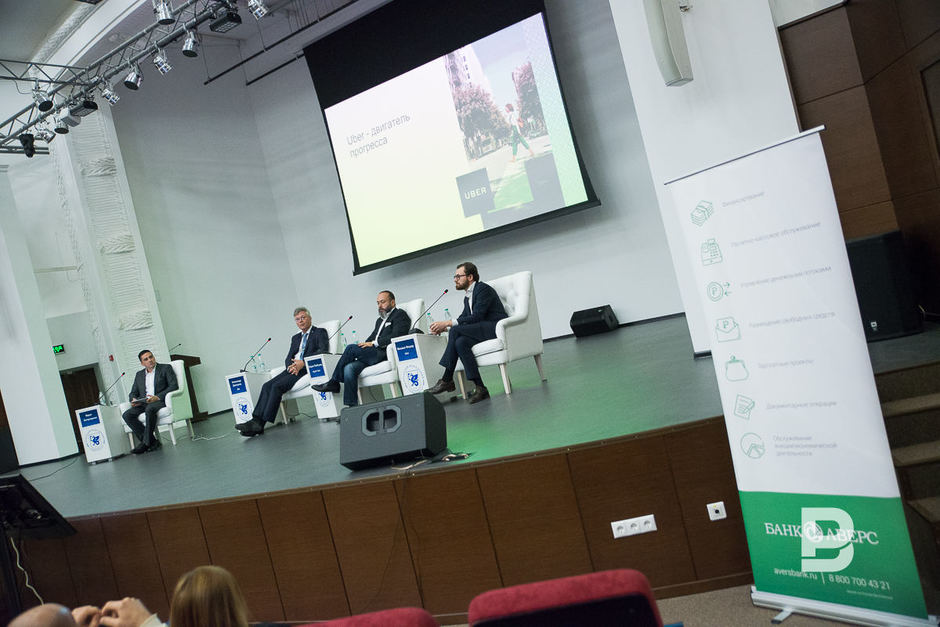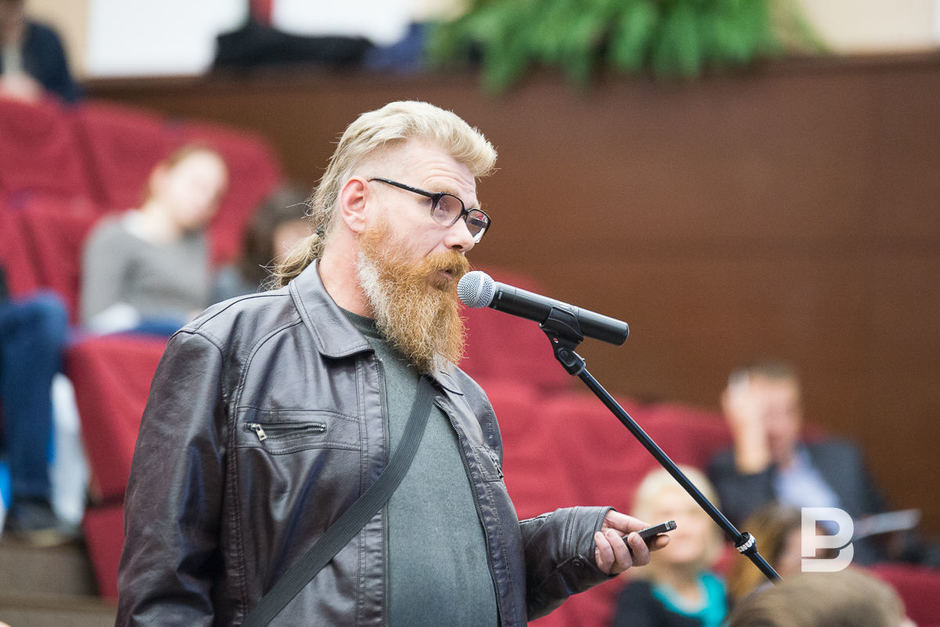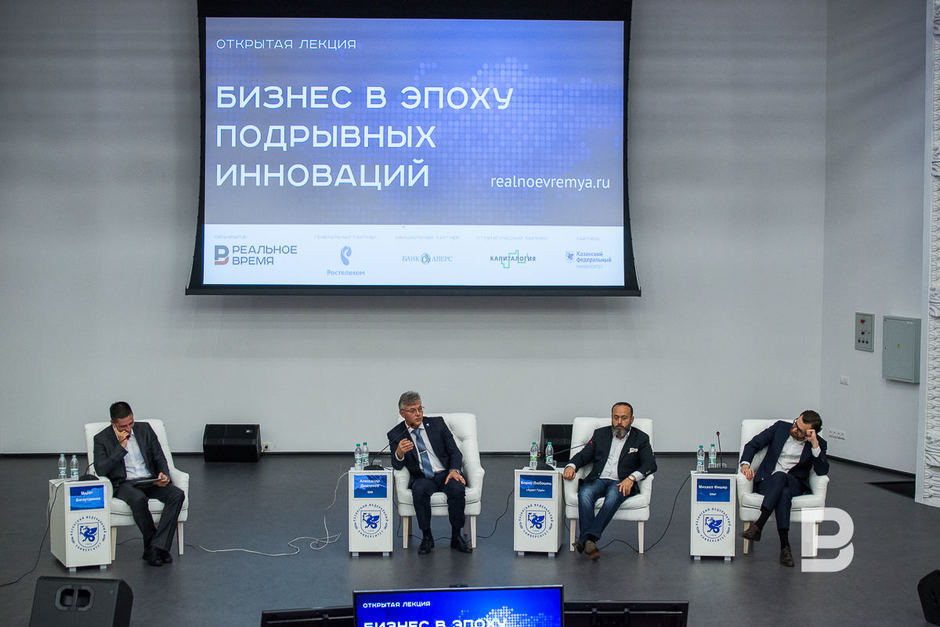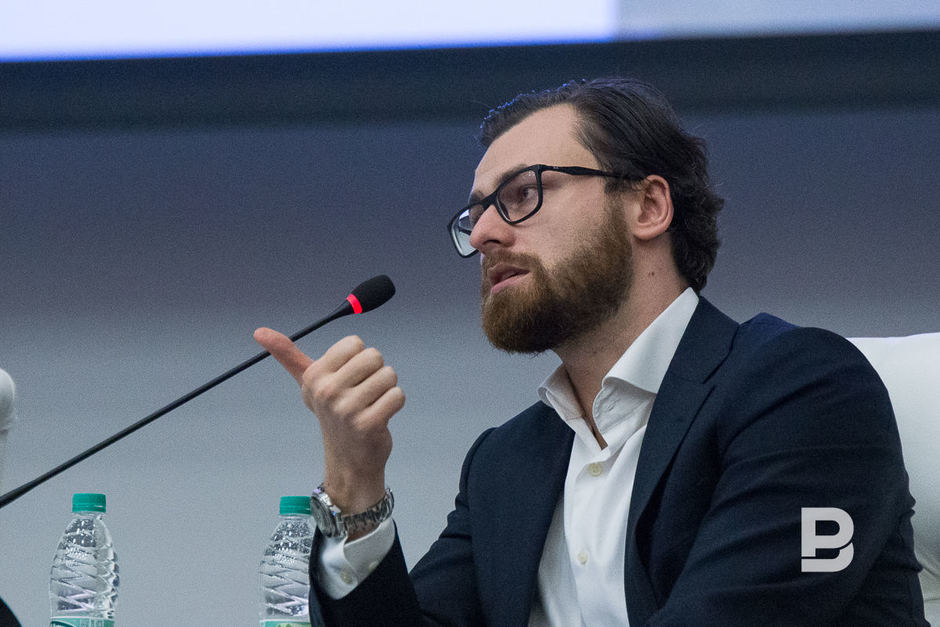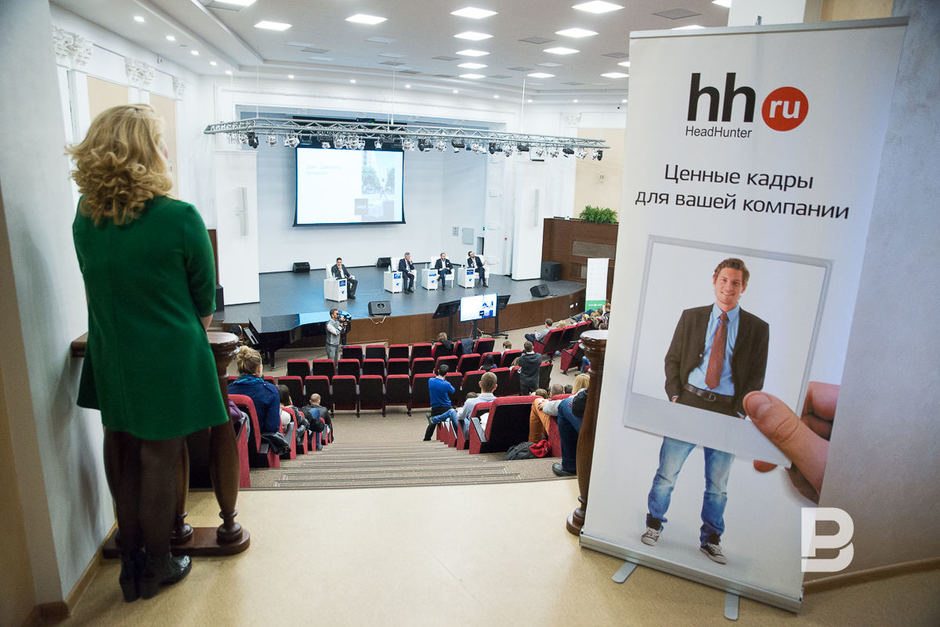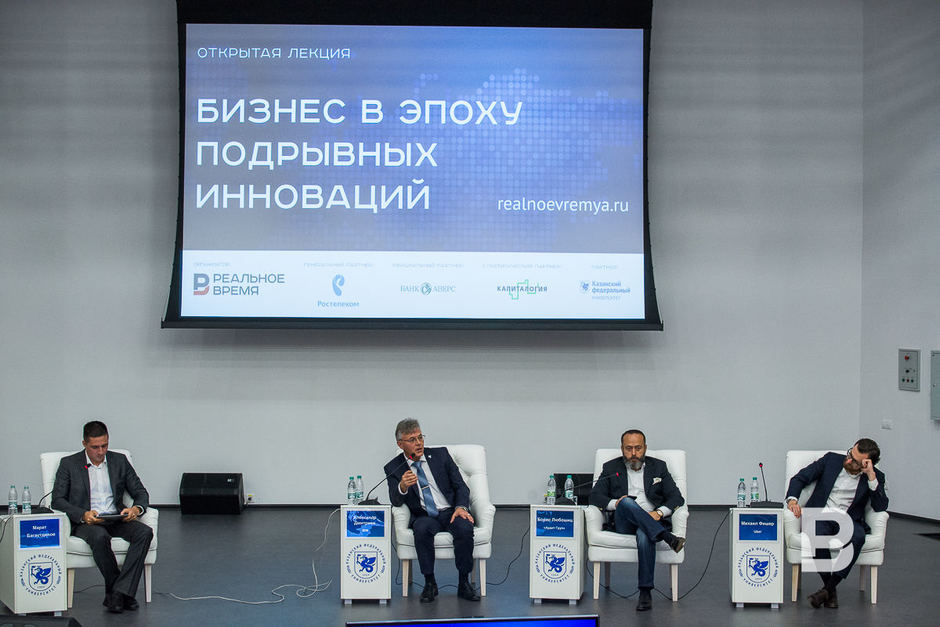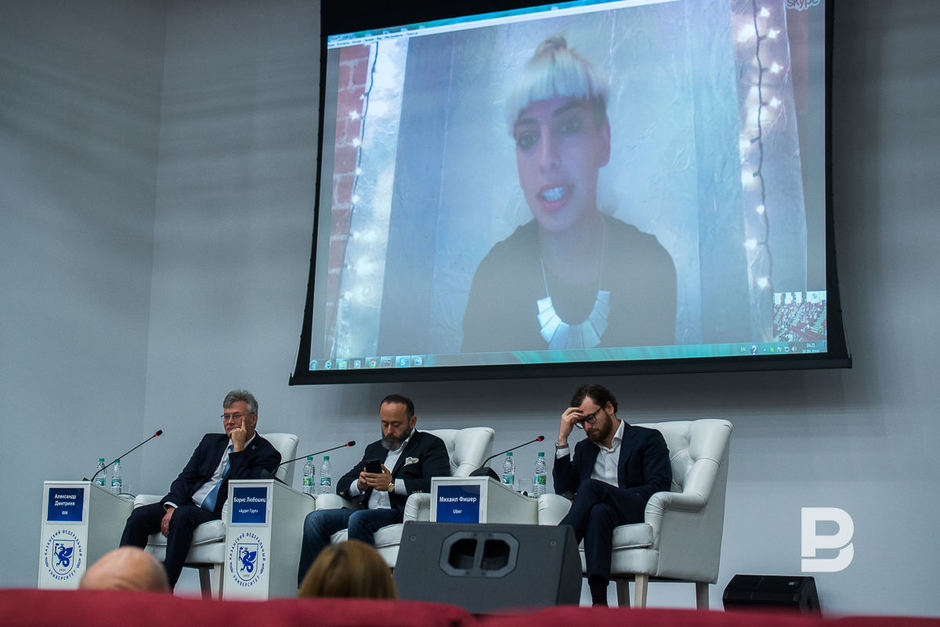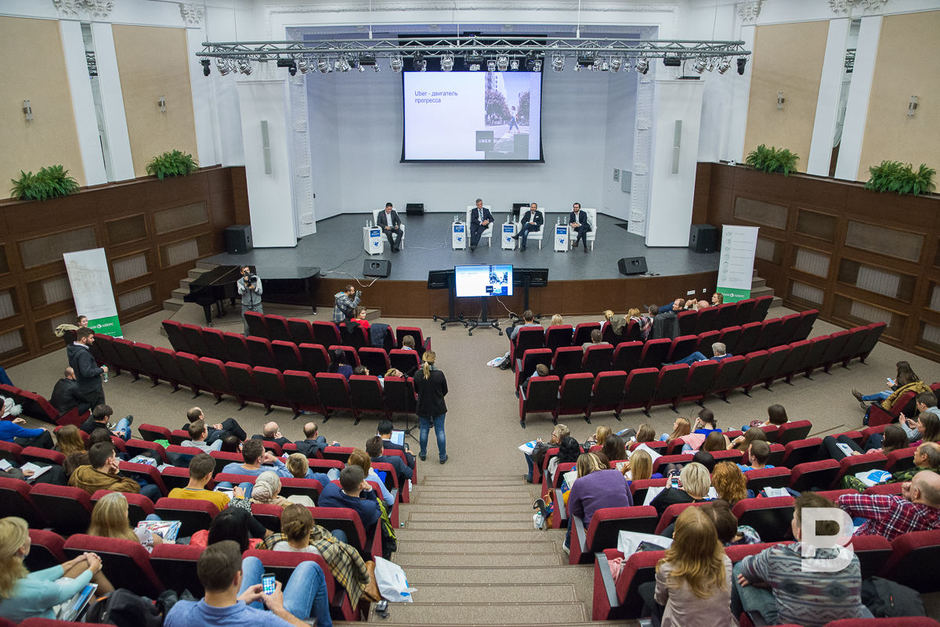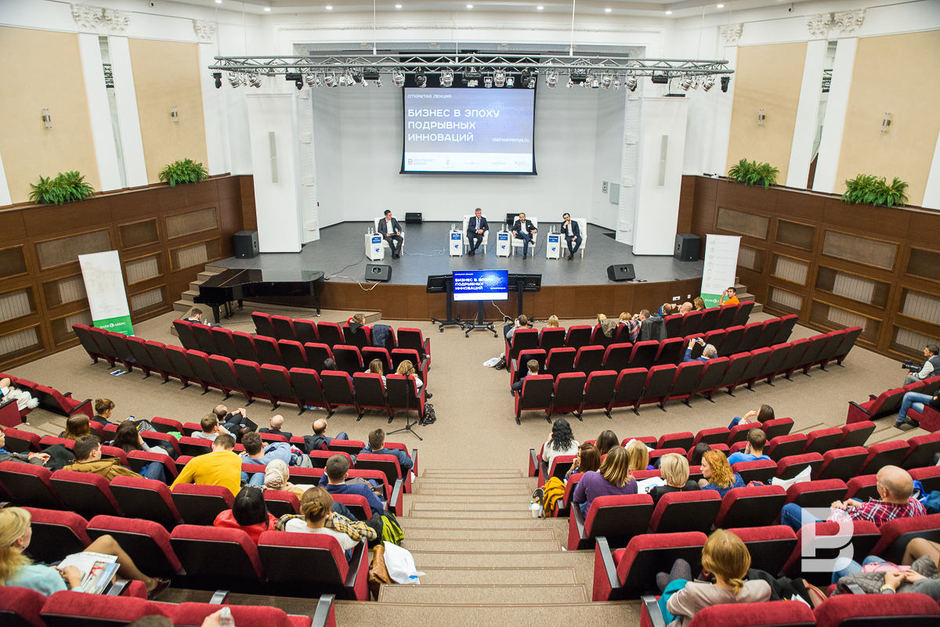Realnoe Vremya’s open lecture: ‘disruptive technologies’ in business or why cyborgs won’t attack people
Speakers of Realnoe Vremya’s open lecture told how the world’s leading companies are trying to look to the future with disruptive technologies
The annual business lecture took place in Kazan on 30 September. Realnoe Vremya online newspaper was its organiser. This event has been held for the second time. This year the topic of the lecture was Business in the Era of Disruptive Technologies. How to Become a Leader. Representatives of IBM, Uber, Volvo, Kaspersky Laboratory told what terrifies business heads throughout the world, how to create a business of the future, and what team is needed for this purpose.
'Killed dragons on the way of innovator'
'Disruptive innovations' are innovations that change the ratio of values in the market. At the same time products remain uncompetitive just because the parameters the competition was based on become unimportant. This term was invented by Clayton Christensen in 1997 in his book The Innovator's Dilemma: When New Technologies Cause Great Firms to Fail. Clayton Christensen studied the reason for which the largest companies, world leaders in their sector rapidly lose their dominating positions, lose momentum when new technologies appear in the market. For example, phone substituted telegraph, steamboat changed sailing ship, semiconductors substituted vacuum tubes, digital cameras came instead of film cameras, e-mail 'disrupted' the traditional mail.
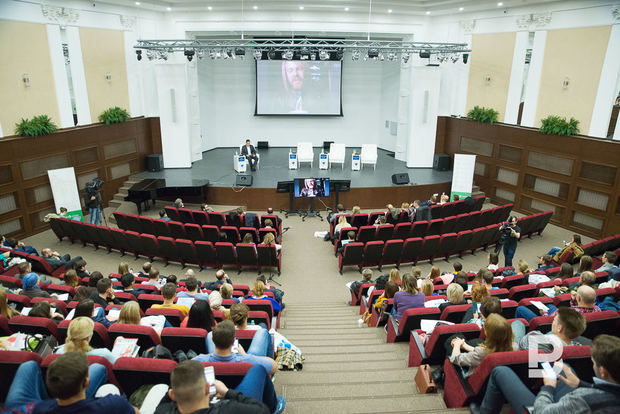
Modern innovations are frequently concentrated in IT. IBM did a research and inquired heads around the world. It turned out IT risks, consequently, IT security, not political or economic situation, are of concern to business today. The appearance of new information technologies can drastically change the development of a business or simply destroy it. Evgeny Chereshnev who works at Kaspersky Lab told what disruptive technologies appear in IT.
'A person with a chip inside his hand' is a 37-year-old lawyer from Voronezh Oblast who graduated from MGIMO worked as a journalist and was a businessman. One year ago he was the first person in Russia to have an NFC chip implanted. He thinks it is not easy to be an innovator. And one needs to 'kill many dragons' on this way. In order to be competitive, one needs to create new products like some IT companies do, they make new goods once in three weeks. The pace was much slower just several years ago – once in a year, in two years.
Evgeny Chereshnev told about a new vector in IT: creation of 'smart things'. Such devices understand their owner's needs, remember them and know to adapt.
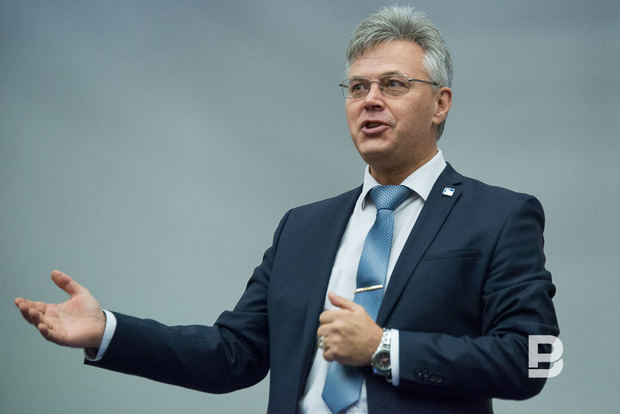
'Mind amplifier'
The topic of information technologies in our life was continued by a leading system architecture at IBM's Client Centre and consultant on Industrial Solutions at MBA, Warwick Business School Aleksander Dmitriev. He told that now big IT companies working in the analytical market are trying to help people to deal with a great amount of data, find useful information and make a correct decision. Creation of a company also completes similar tasks. It is a cognitive technology called IBM Watson named after Tomas Watson who was one of the originators of IBM. Very Aleksander Dmitriev considers the system a 'mind amplifier'.
This cognitive system is able to talk to people in a natural language, that is to say, understand a written text and reply in the same way. This know-how can be used everywhere where a big volume of unstructured data needs to be processed. IBM Watson's key skills can be narrowed down: understanding of a natural language, formulation of hypotheses based on the processed data, making recommendations with the facts that were used to make a conclusion.
The commercial use began in medicine by a diagnostician. IBM Watson had been studying medical documents for two years in advance. It processed about 2m pages and then 'started to work' in several US hospitals. IBM Watson helps doctors to make diagnoses and recommend optimal treatment.
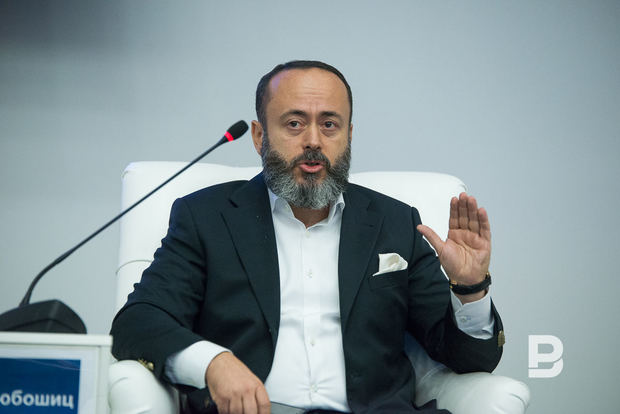
Strong leader – strong team
The director general of Audit Group CJSC, a member of the council general of Business Russia Boris Lyuboshits is an engineer, and he was taught to build factories. But now he says people are taught to build a business. Particularly, Boris Lyuboshits tried to teach the participants of the lecture to build teams to be able to create and implement disruptive technologies with. He put an example of a research done by PricewaterhouseCoopers. According to them, while implementing new products, a business was worried about the following questions: How to bring this product to market? Who will do it? What team?
According to Boris Lyuboshits' experience, all successful people are the owners of companies who invented their life first and then made it real. In other words, goal and strategy are the most important things. A leader who will head a team must know them. And he told about his friend who brought a snowboard to Russia. Now he has a multibillion business and 13 snowboard centres in Russia. 'He had neither money nor team. But he had a goal. So he created everything for this goal. A strong leader is able to create a team that will be capable of any innovations.
Another conclusion made by the speaker is that a common goal is built on the basis of common values. It is important while selecting people in the team. Having common goals, one can create a strategy and motivate employees. Such a team will be able to make changes that change the life of the company.
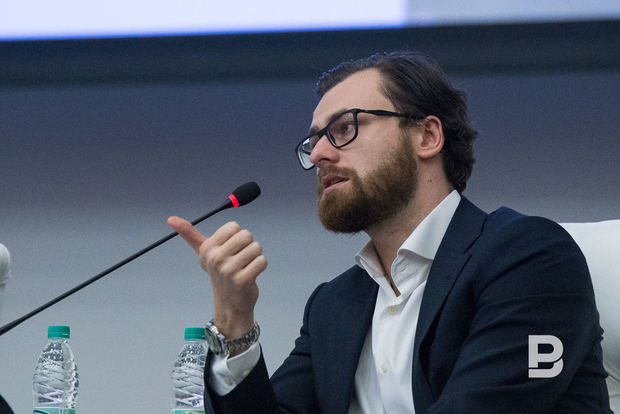
Without personal transport
Regional Development Director at Uber Russia Mikhail Fisher presented his vision of the future of carriages. He showed curious numbers. A personal car is really used only for 4% of our time. During the other 96% of our time, it is parked near your house or work. 15% of all the sites in a city are occupied by spaces for storage of cars. And up to 30% of all the traffic jams appear when a driver looks for a parking space.
Mikhail Fisher sees the future of the city logistics in the use of Uber. 'The more people there are, the fewer personal cars we will have. We want to create this transport system. We will reduce the price of the service, so that any sound person will have no reason to have a personal car,' Regional Development Director at Uber Russia explained the strategy of the company.
A project called Uber Pool was created for the accomplishment of these plans. It is a service of shared trips that not only allows passengers to reduce the price of taxi considerably. Uber calculated that one Uber Pool car is able to get rid of up to seven personal cars.
In the future, personal cars will enable to substitute not only taxi cars but also unmanned vehicles. Now such cars are tested in Pittsburgh. In Mikhail Fisher's opinion, these cars will appear in Kazan in 10 years.
Listeners of the lectures asked the Regional Development Director at Uber Russia whether a rapid development of automated technologies poses a threat to humankind and if we will face a future like in The Terminator. Mikhail Fisher is convinced that, anyway, unmanned cars or robots receive instructions given by a person. And they cannot decide to rule the world at a certain moment.
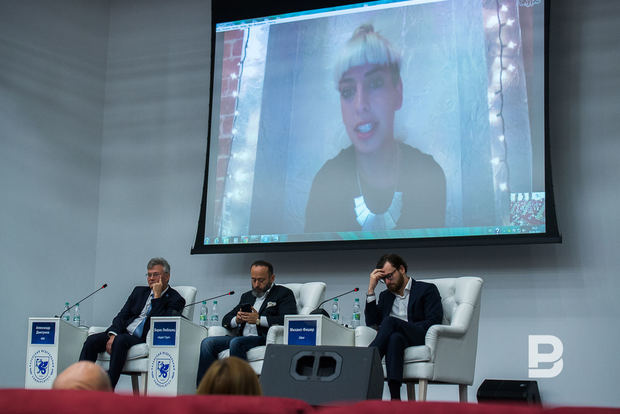
'I'm a cyborg'
A Catalan choreographer Moon Ribas who calls herself a cyborg continued the topic of technologies and peoples of the future. She has a seismic sensor implanted in her elbow that allows her to feel earthquakes through vibrations. She told via Skype that the implanted sensors allow her to feel how the planet moves and feel earthquakes. So now she knows what speed some world capitals have. For example, she thinks London is the fastest city, and Vatican is the slowest one. Moon Ribas also visited Moscow and she thinks it is a slow city.
Volvo's futurologist Aric Dromi also took part in the lecture via Skype. He reminded how many innovations were created on the basis of simple solutions found in ancient times. For example, few people know that solid rockets used to launch a shuttle are delivered on railway platforms whose width corresponds to the width of tramway tracks. And the width of tramway tracks corresponds to the clearance between the wheels of a horse-drawn carriage. In turn, the width of the clearance between the wheels is equal to the clearance of the track gauge, which was built by ancient Romans.
Aric Dromi thinks many modern American companies don't have such a succession. They don't know what they should wait from the future. This is why they won't be able to survive. Meanwhile, technologies develop. Aric Dromi made his own forecast: he is sure one will just a take pill and the brain will connect the net. Now the futurologist thinks his task is to build a platform for future people, so that they will be able to write the 'code of the future'.
